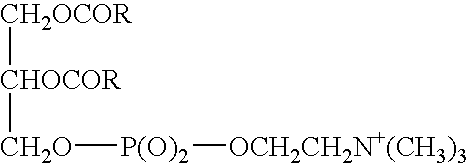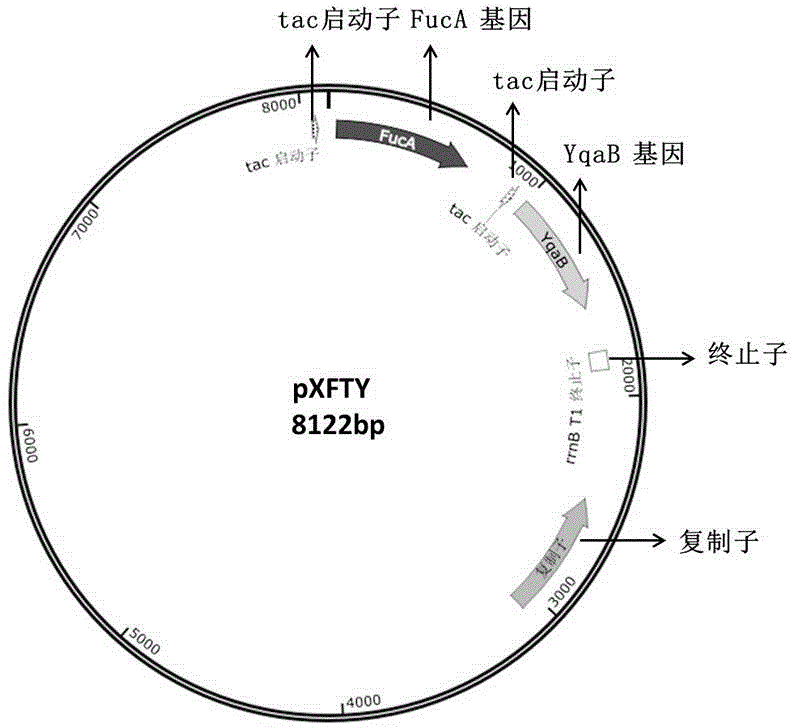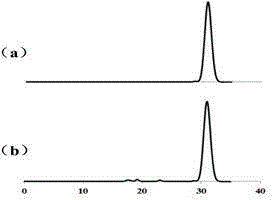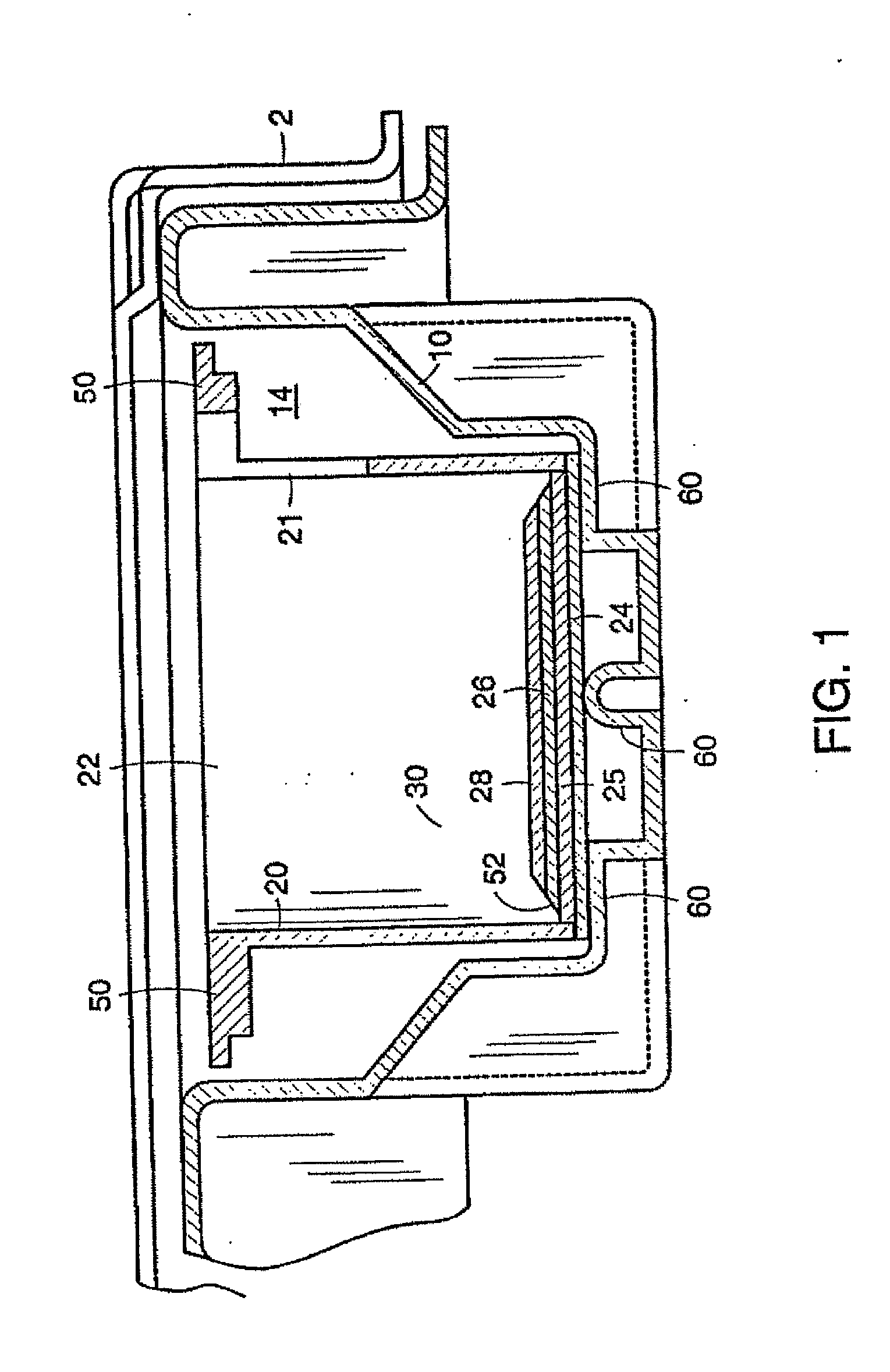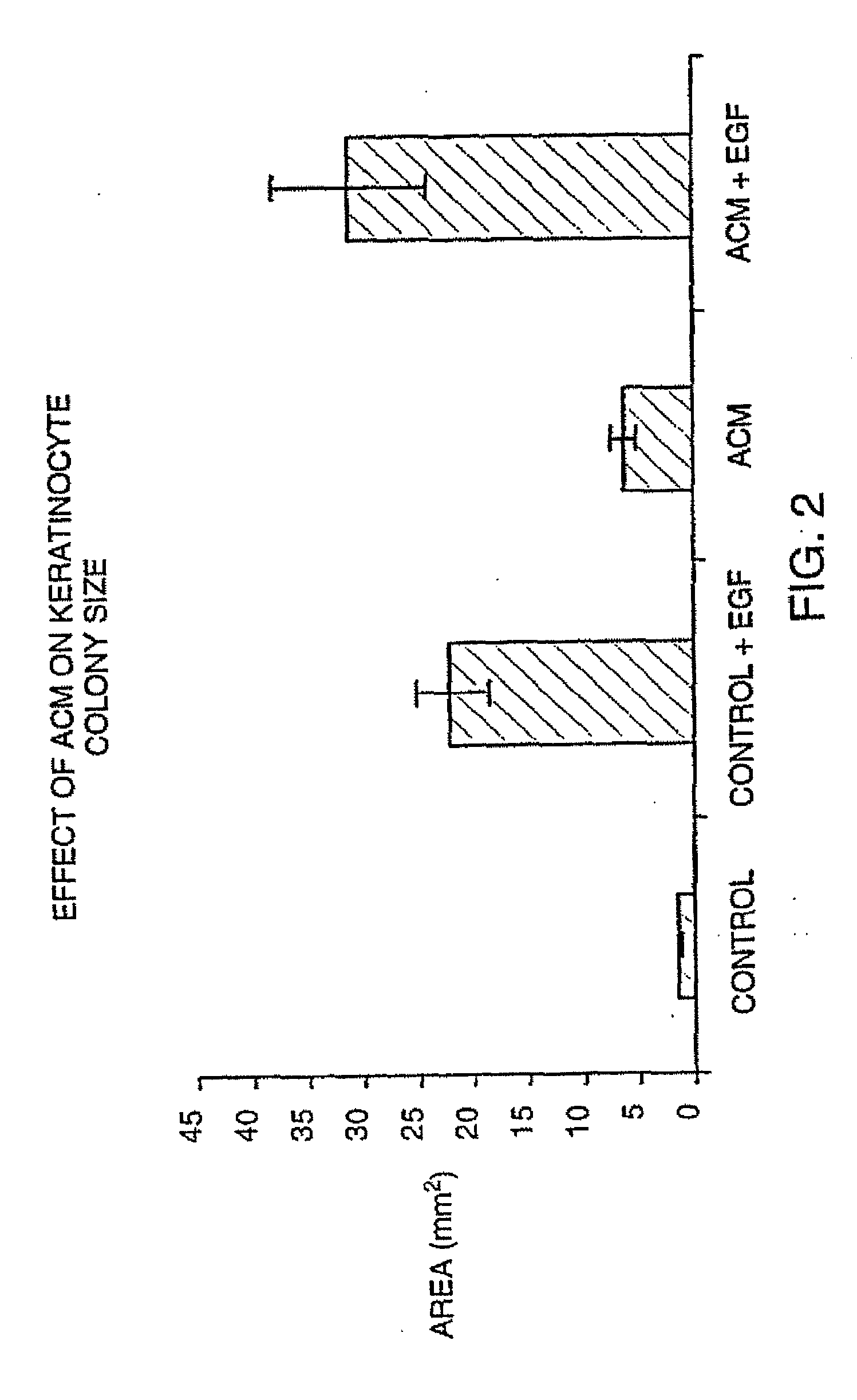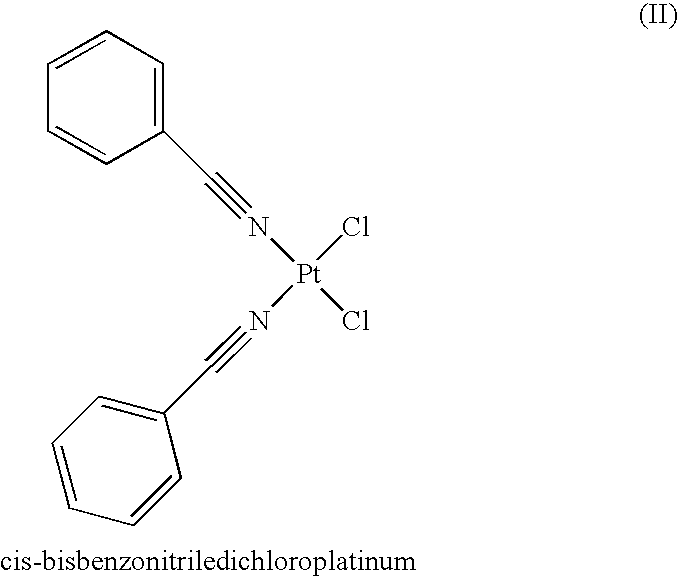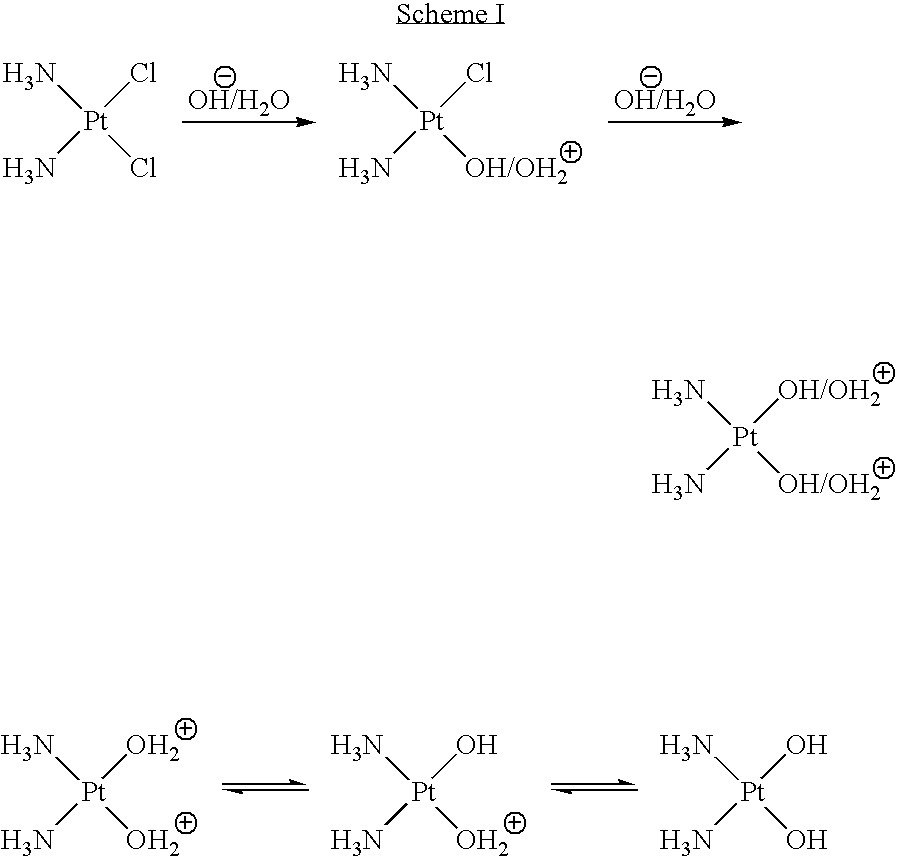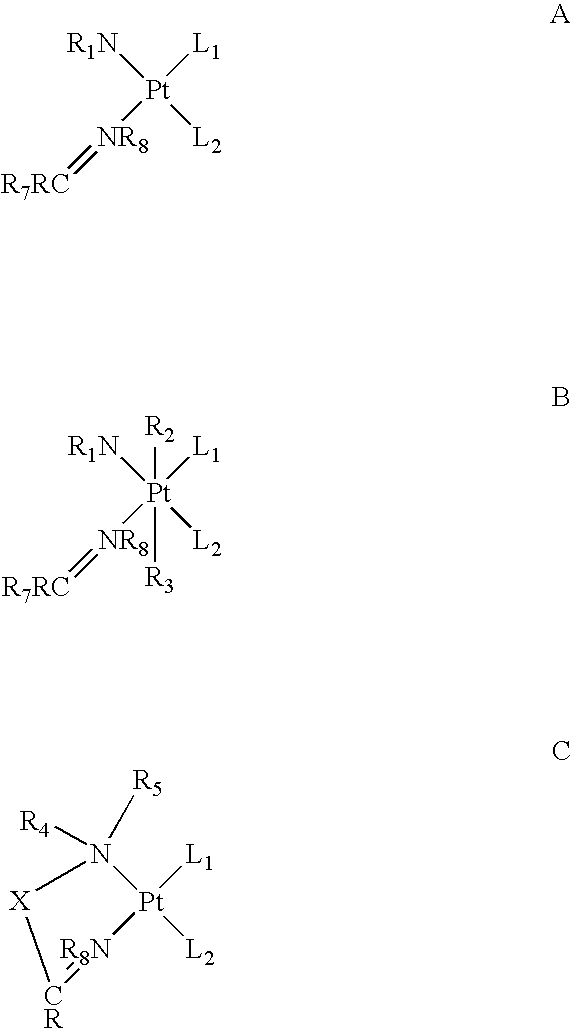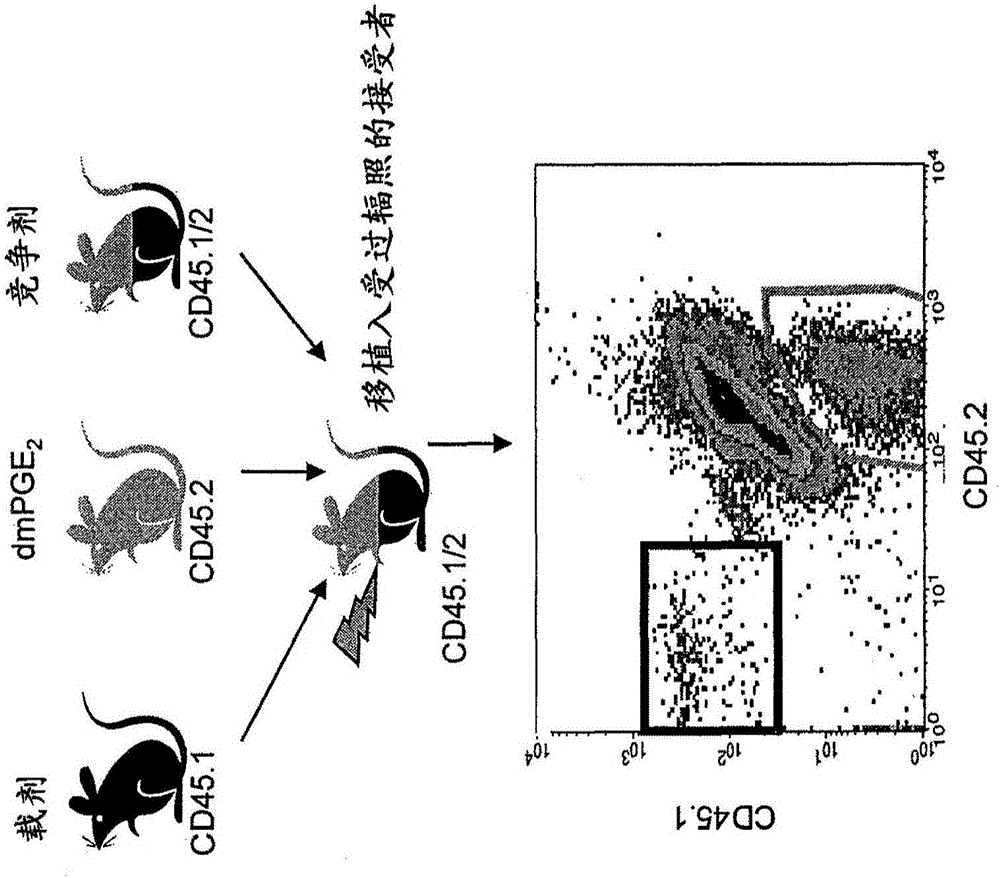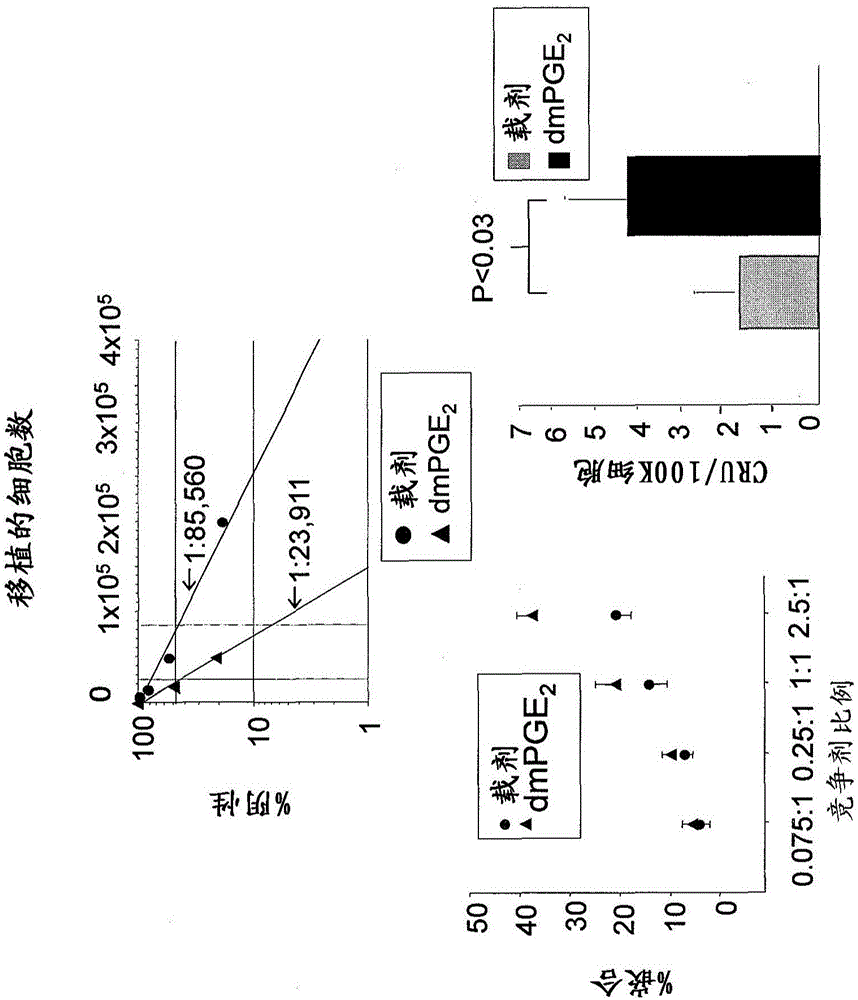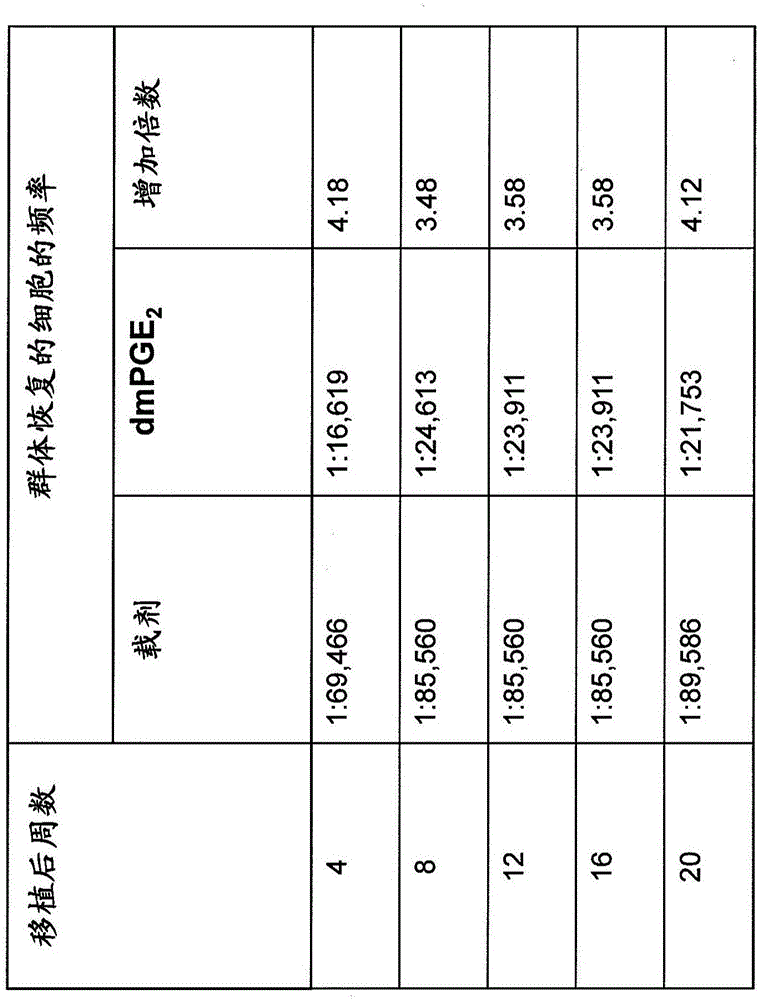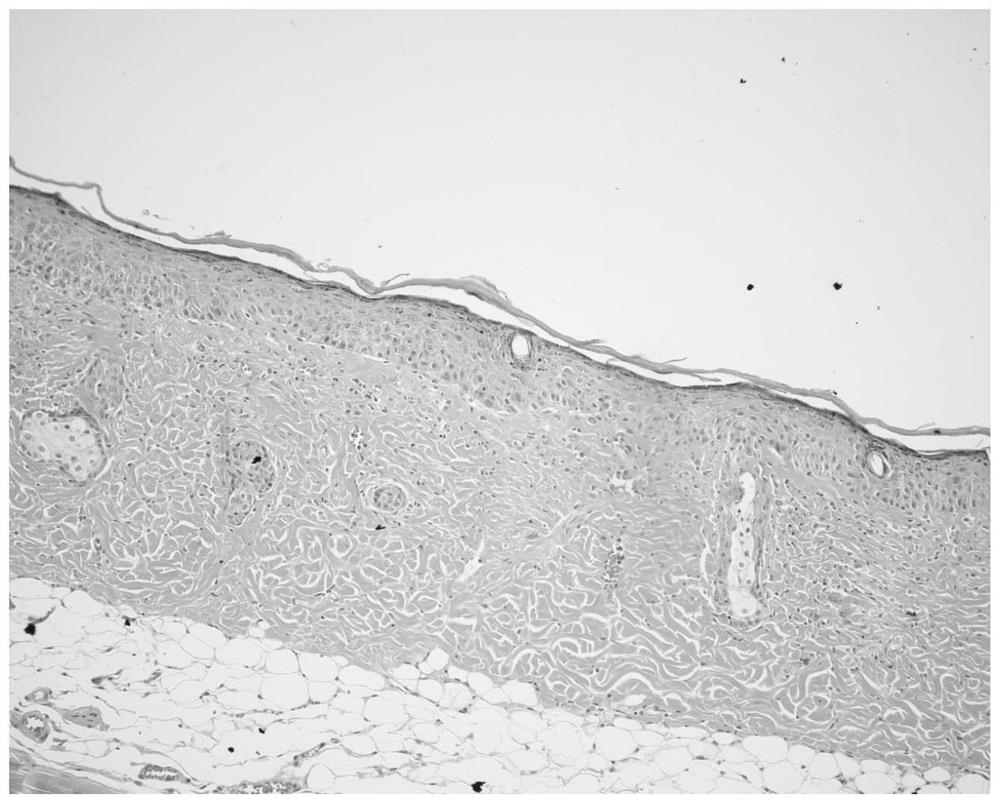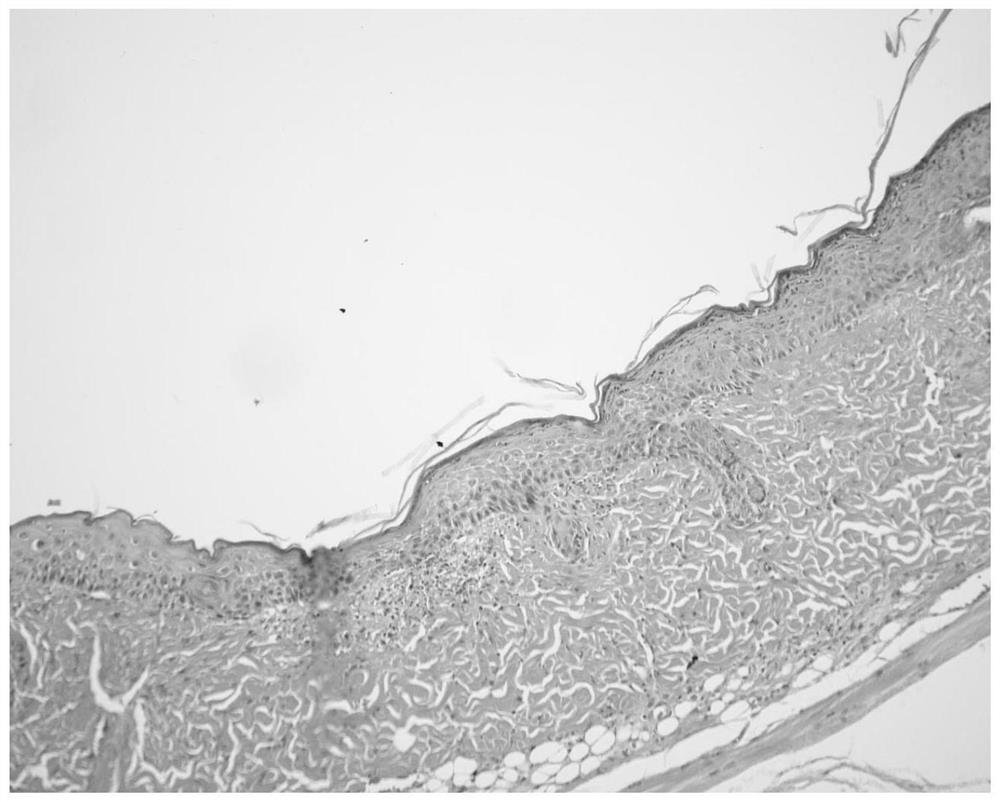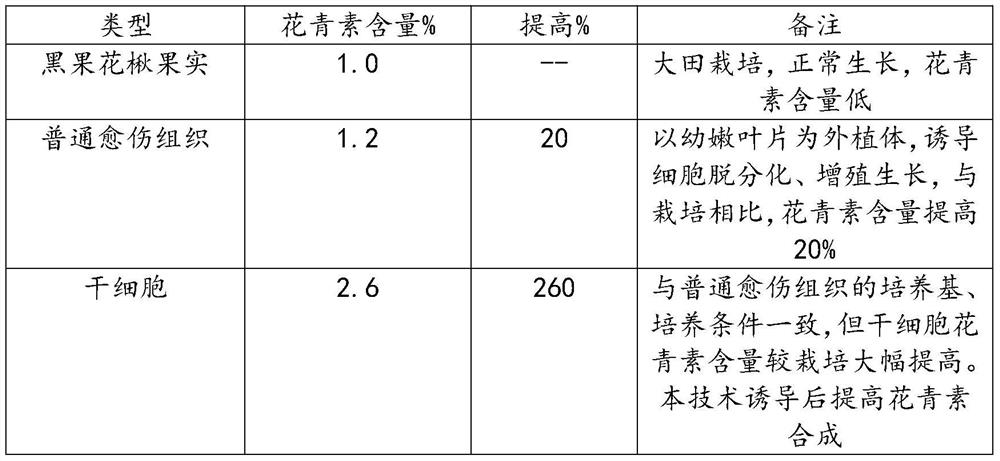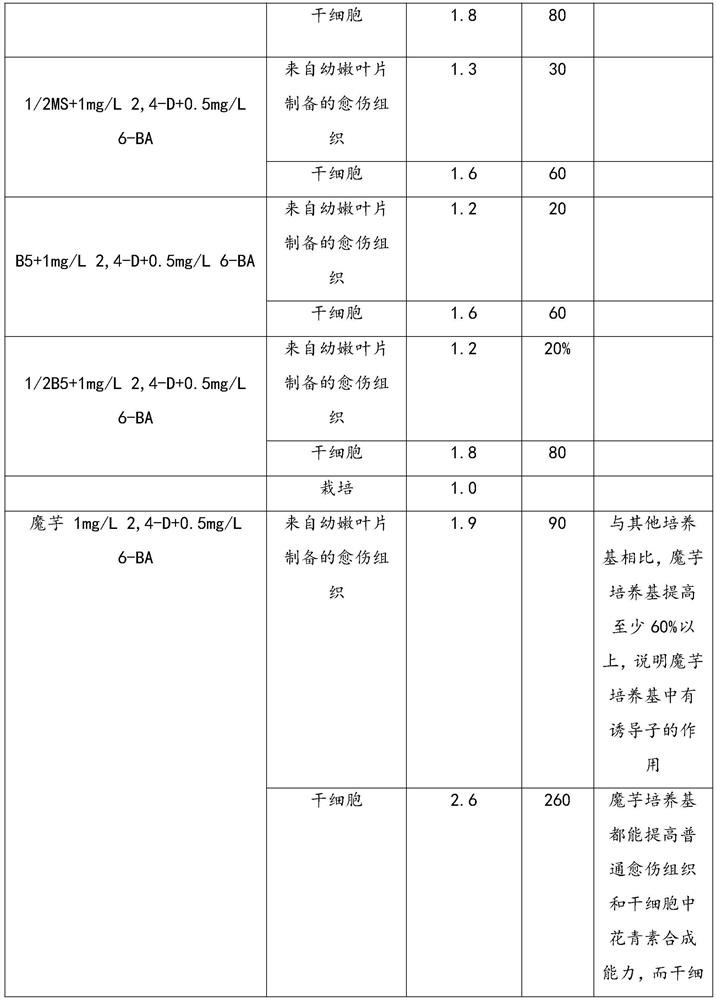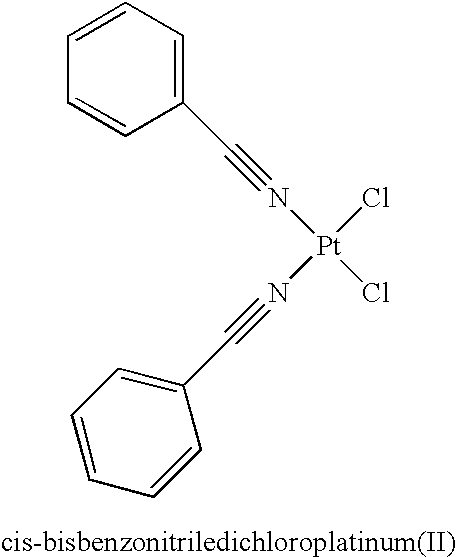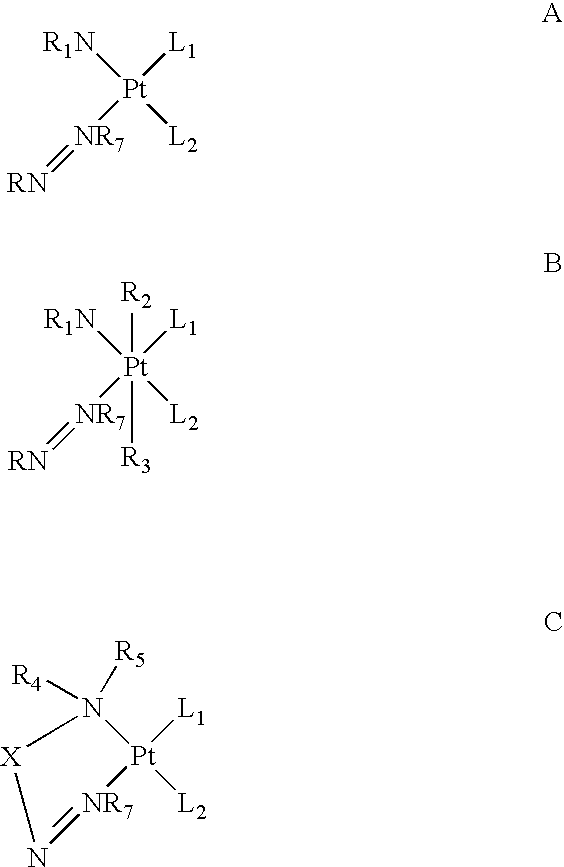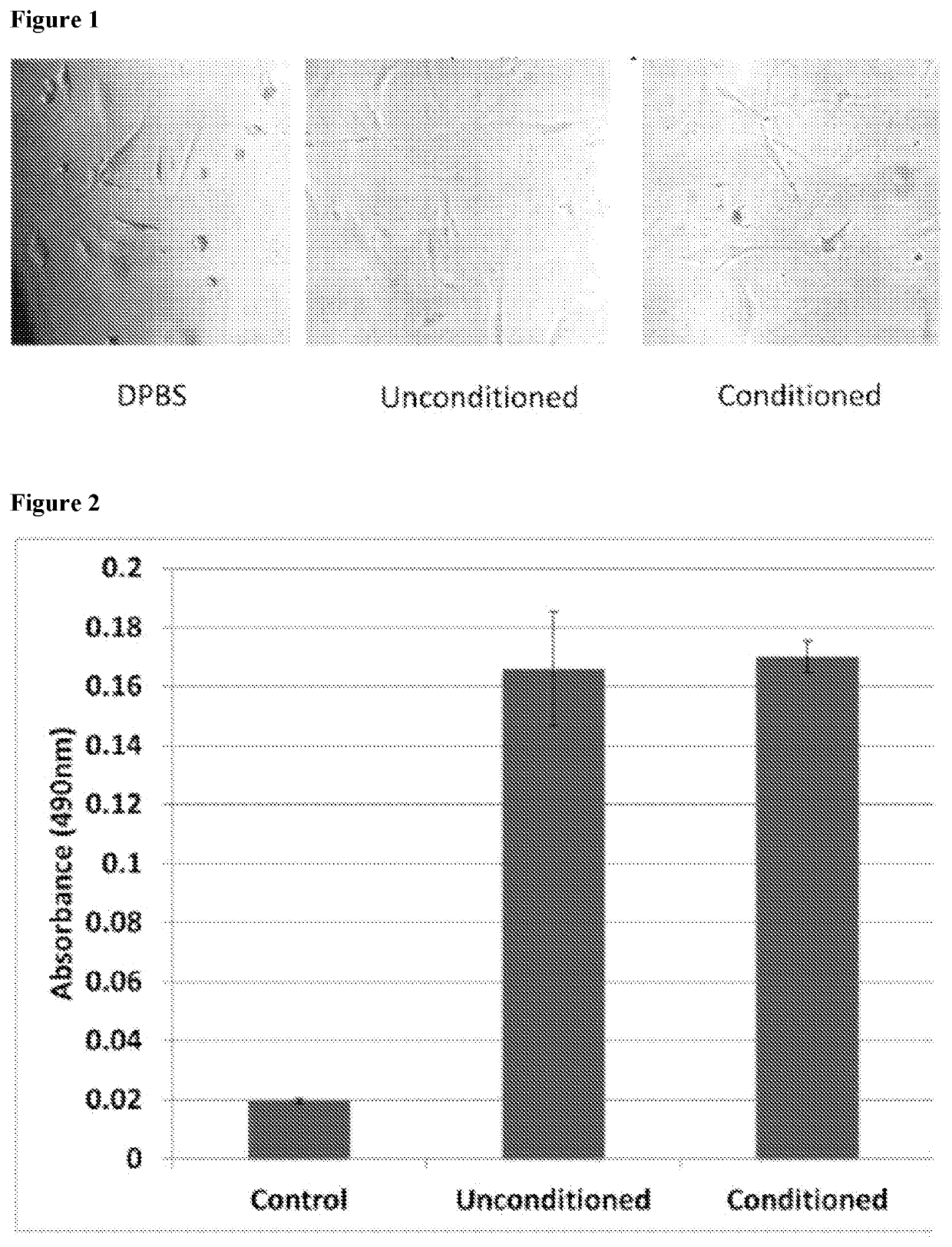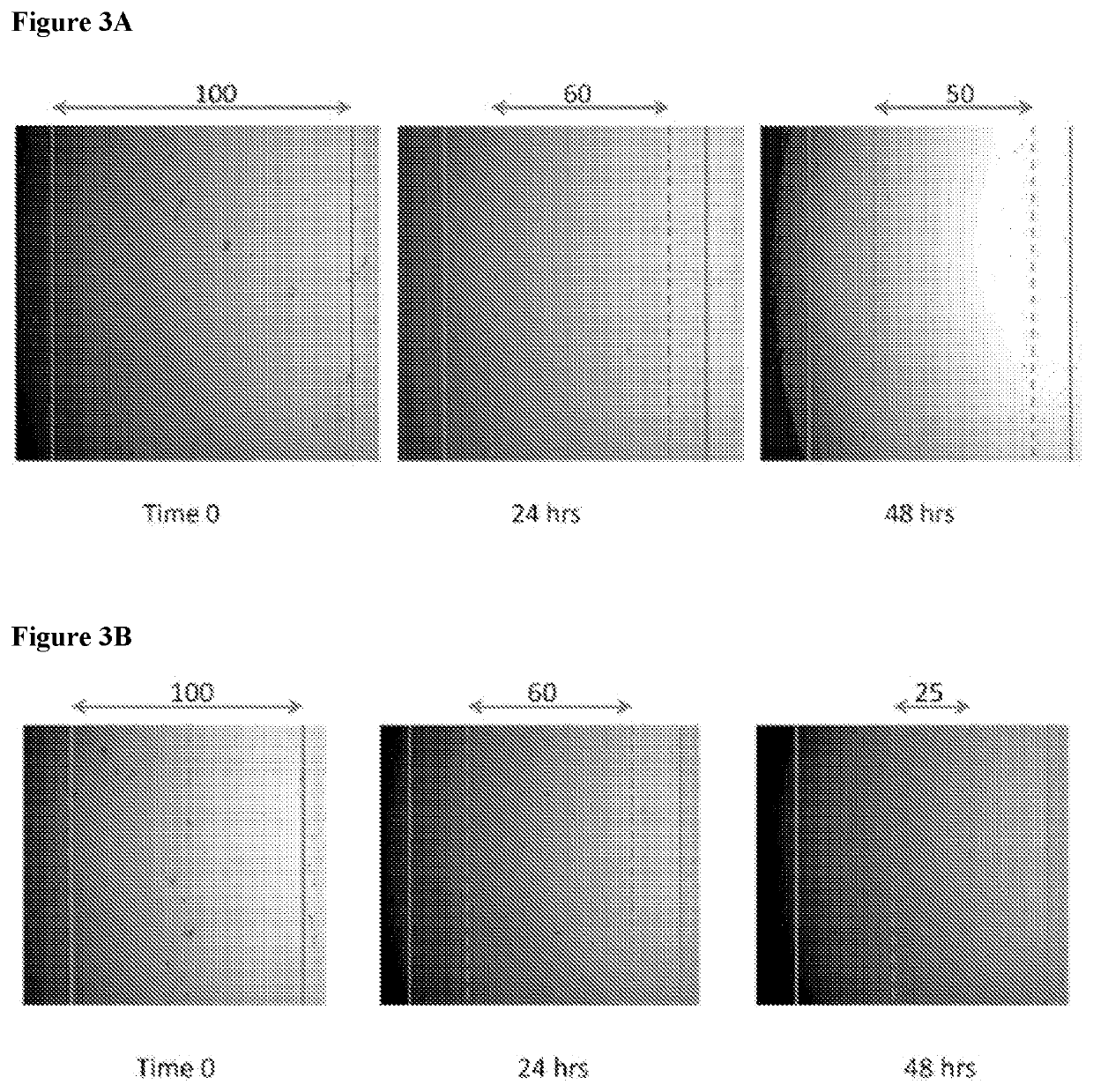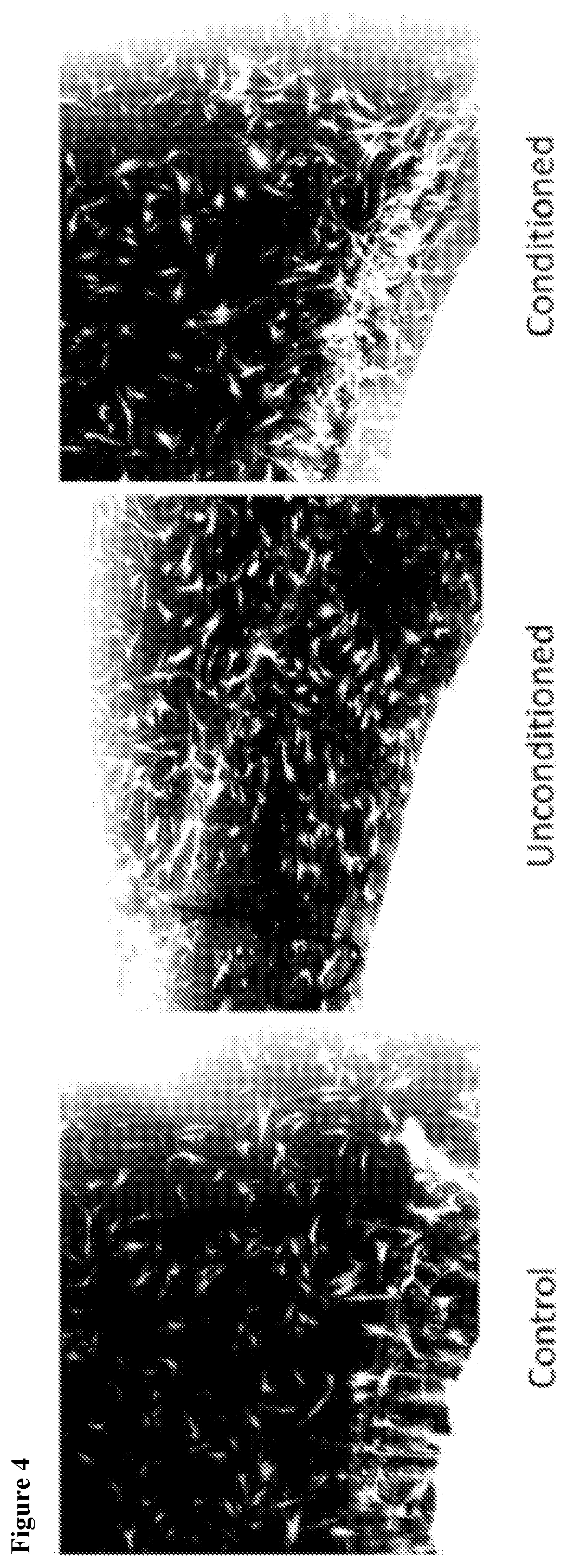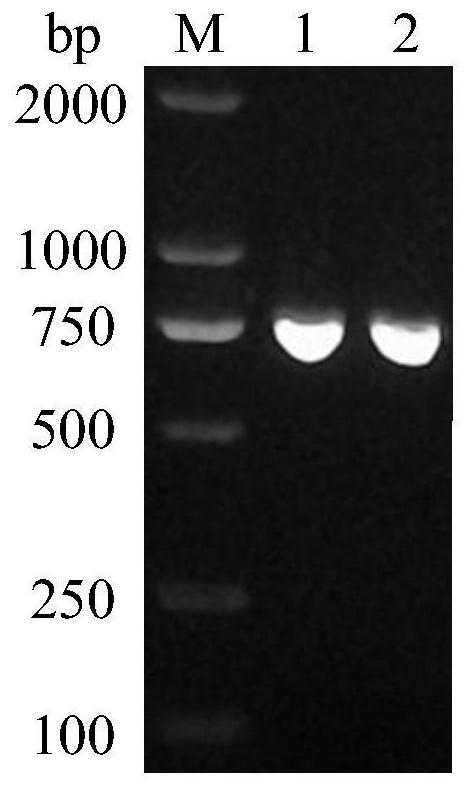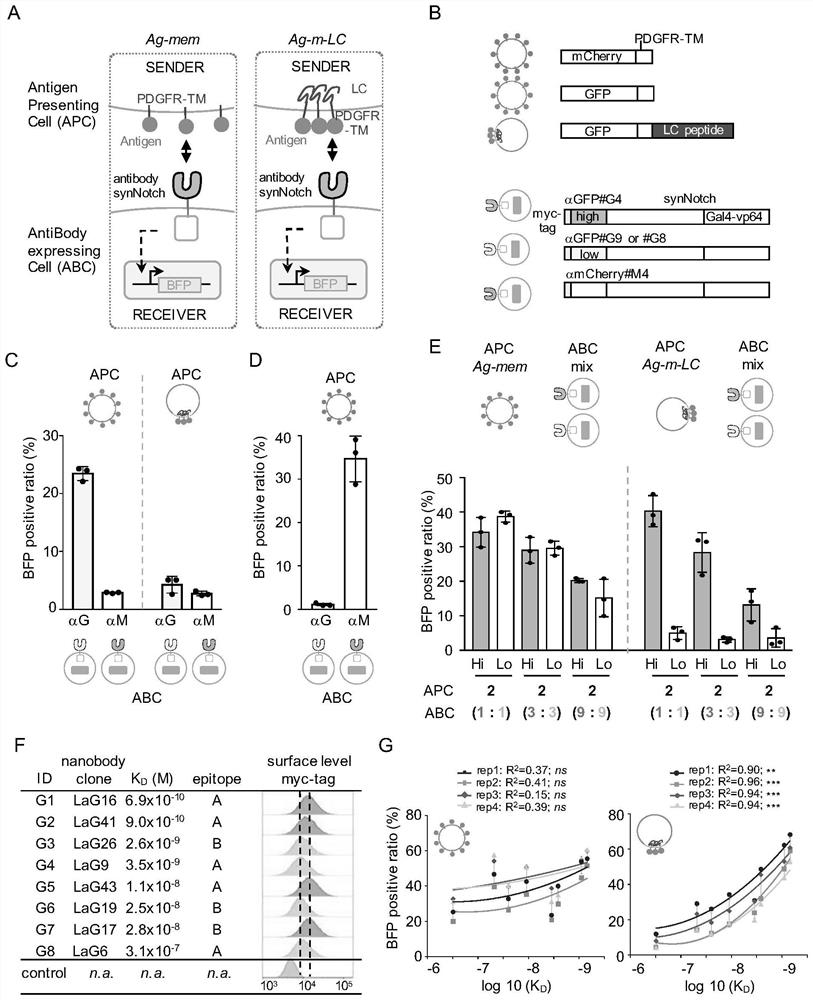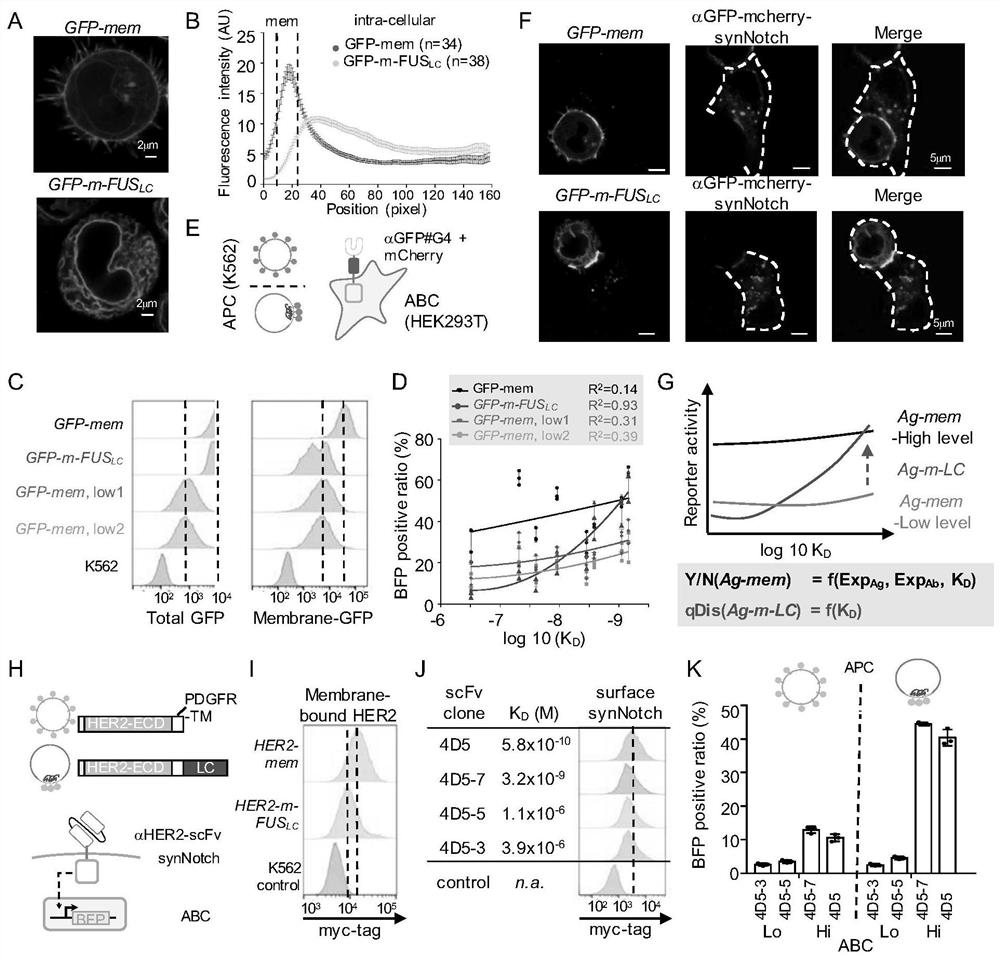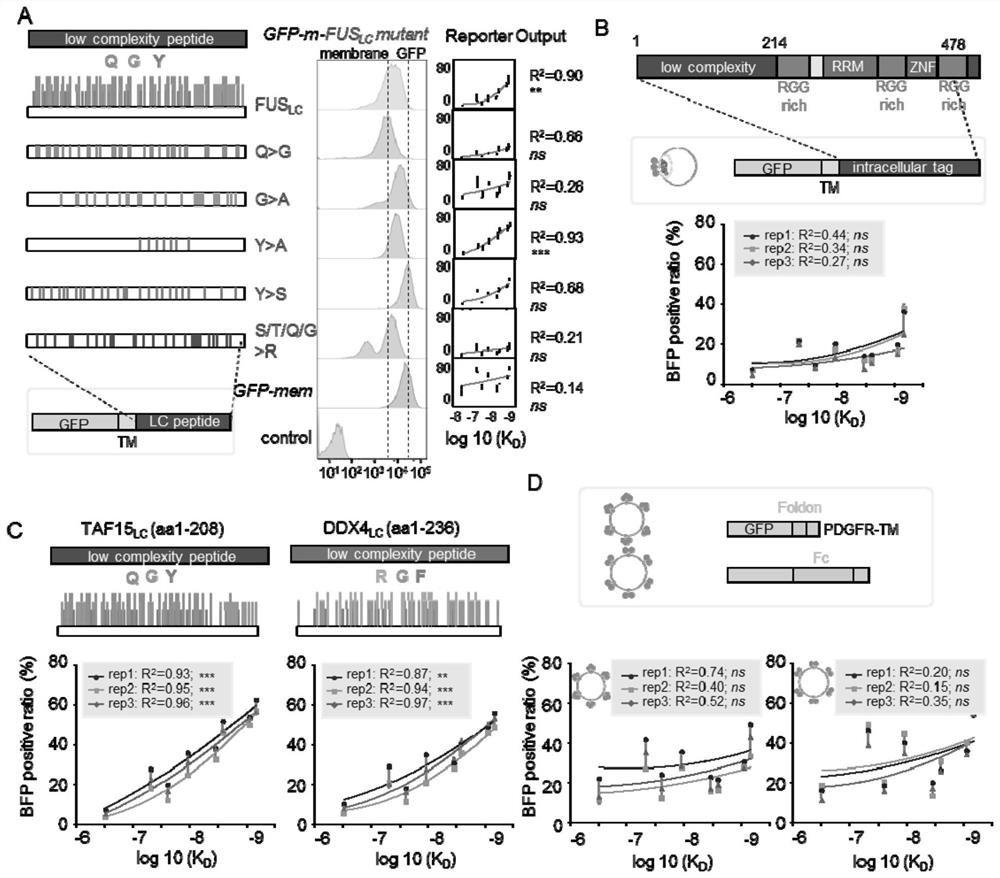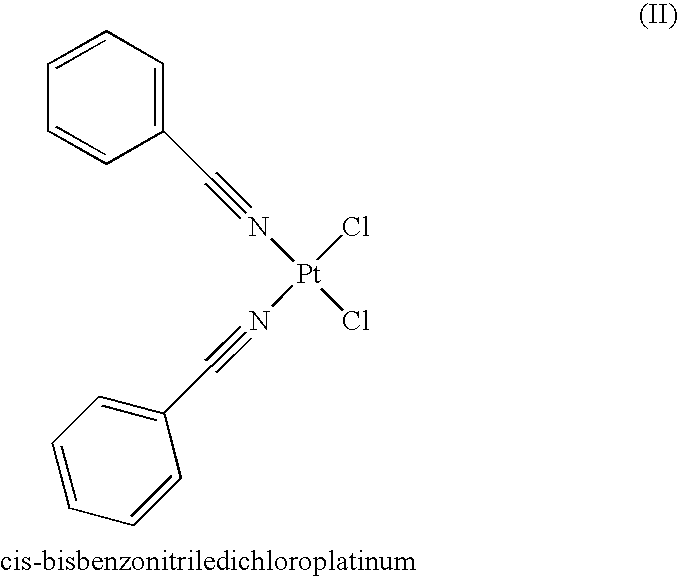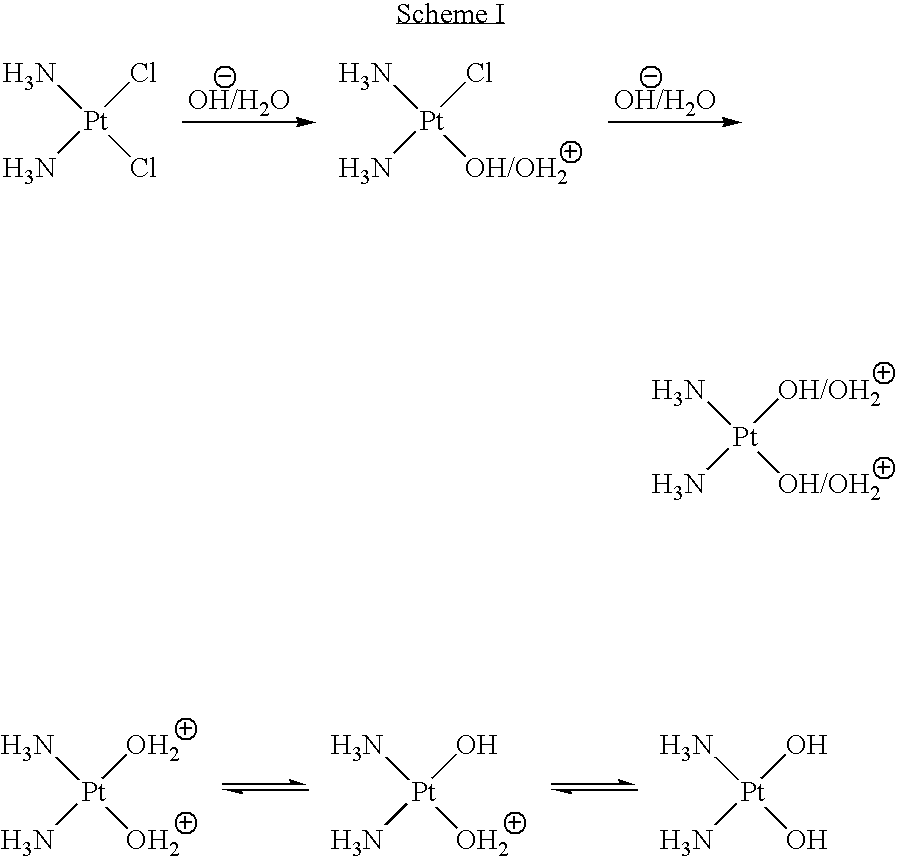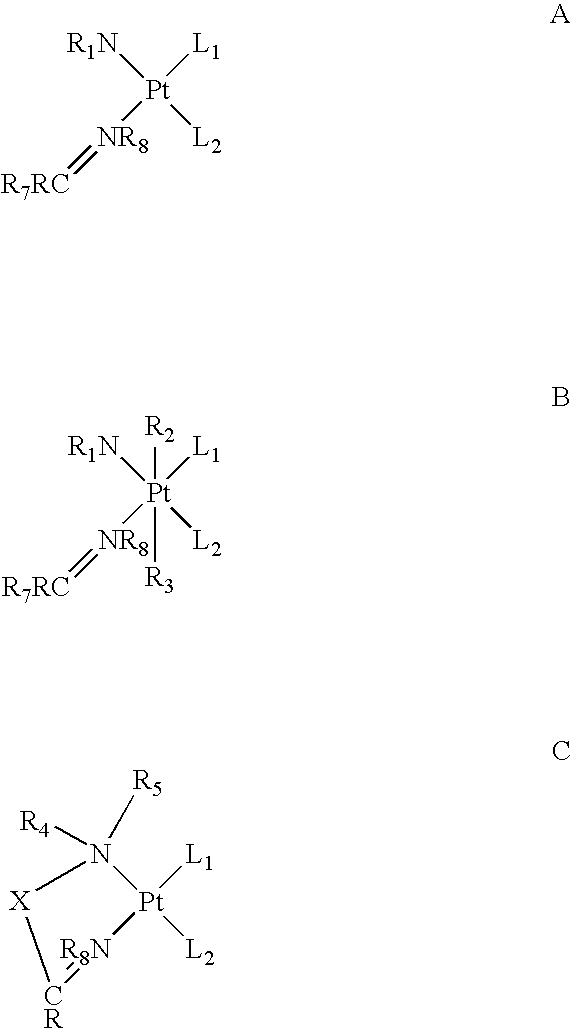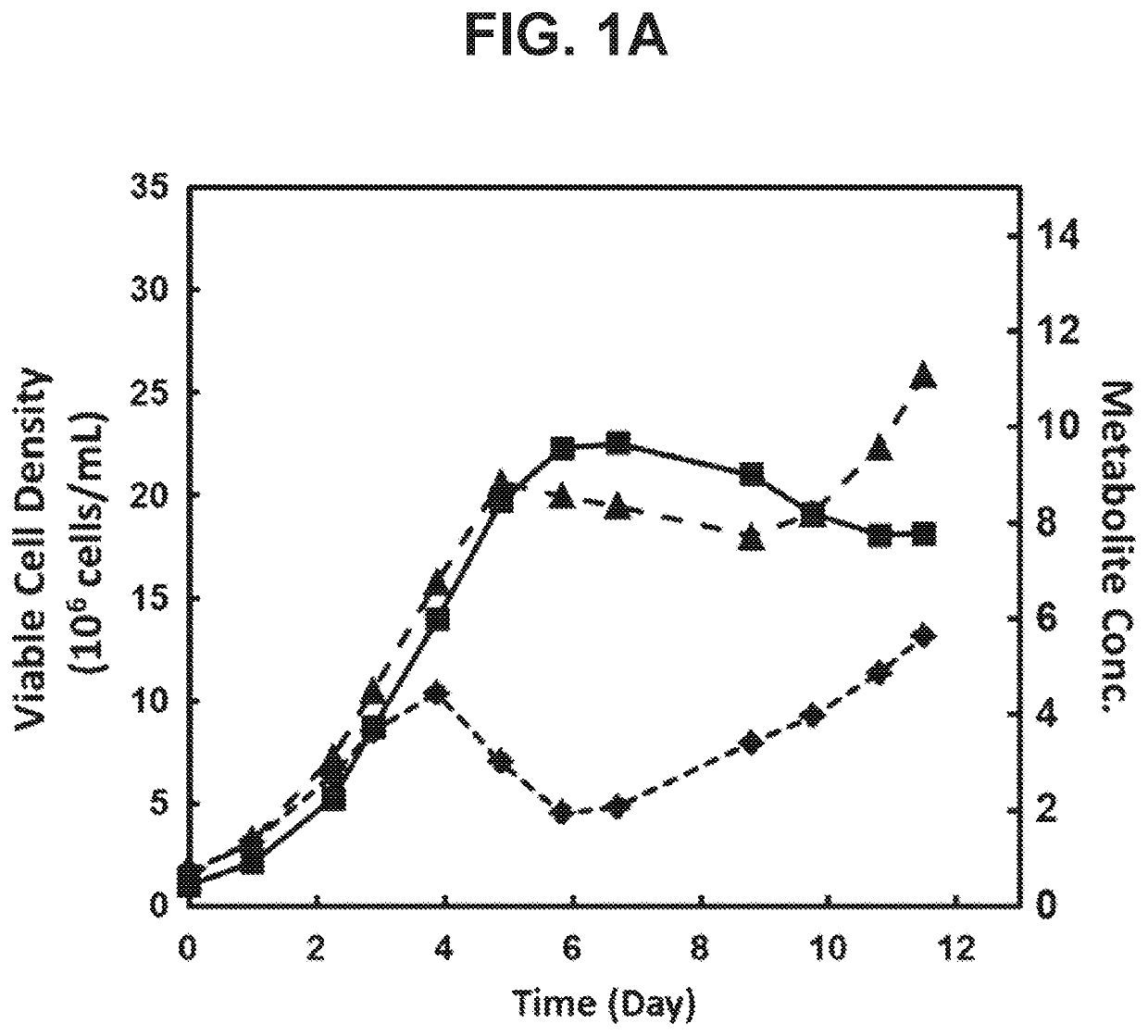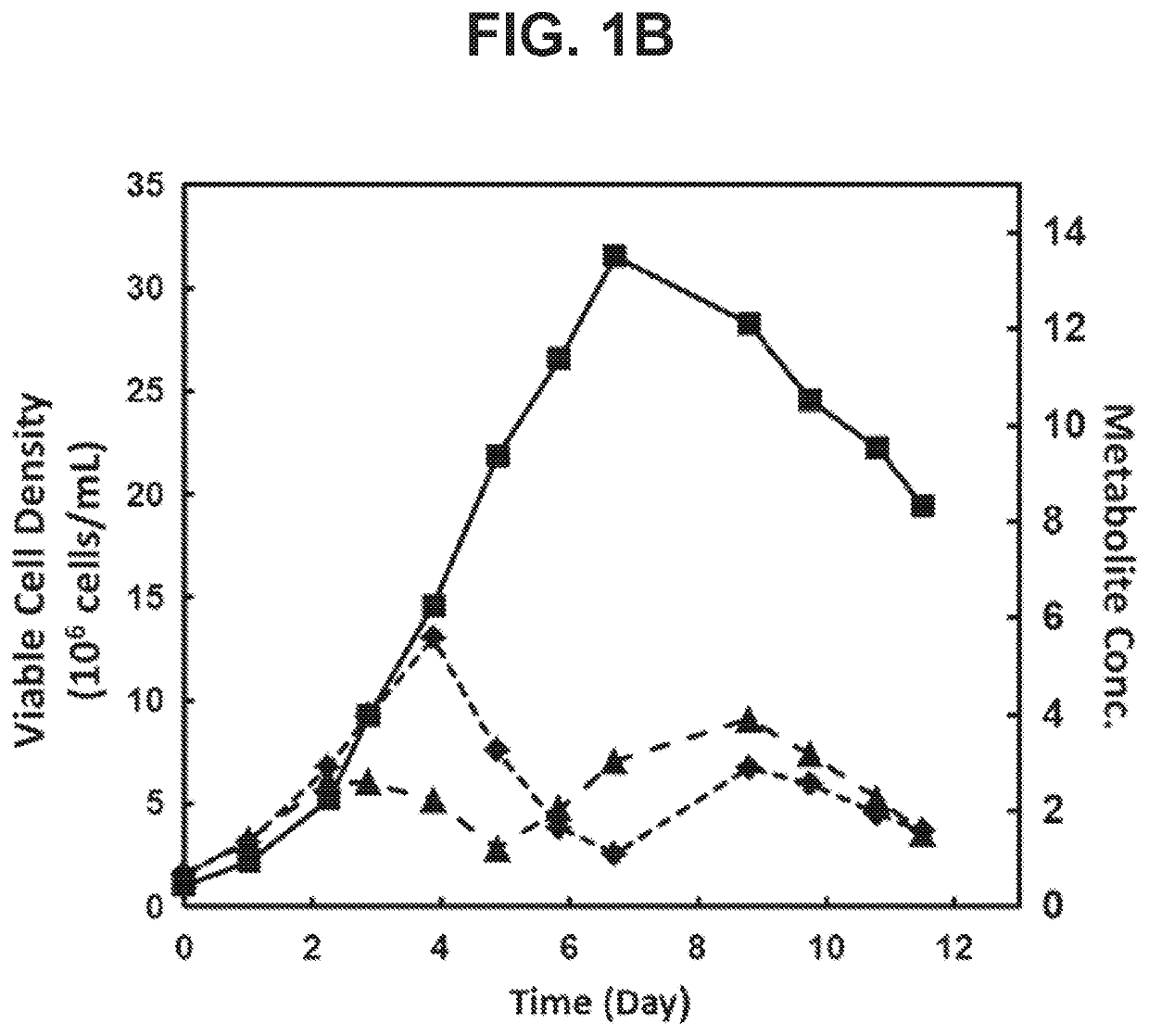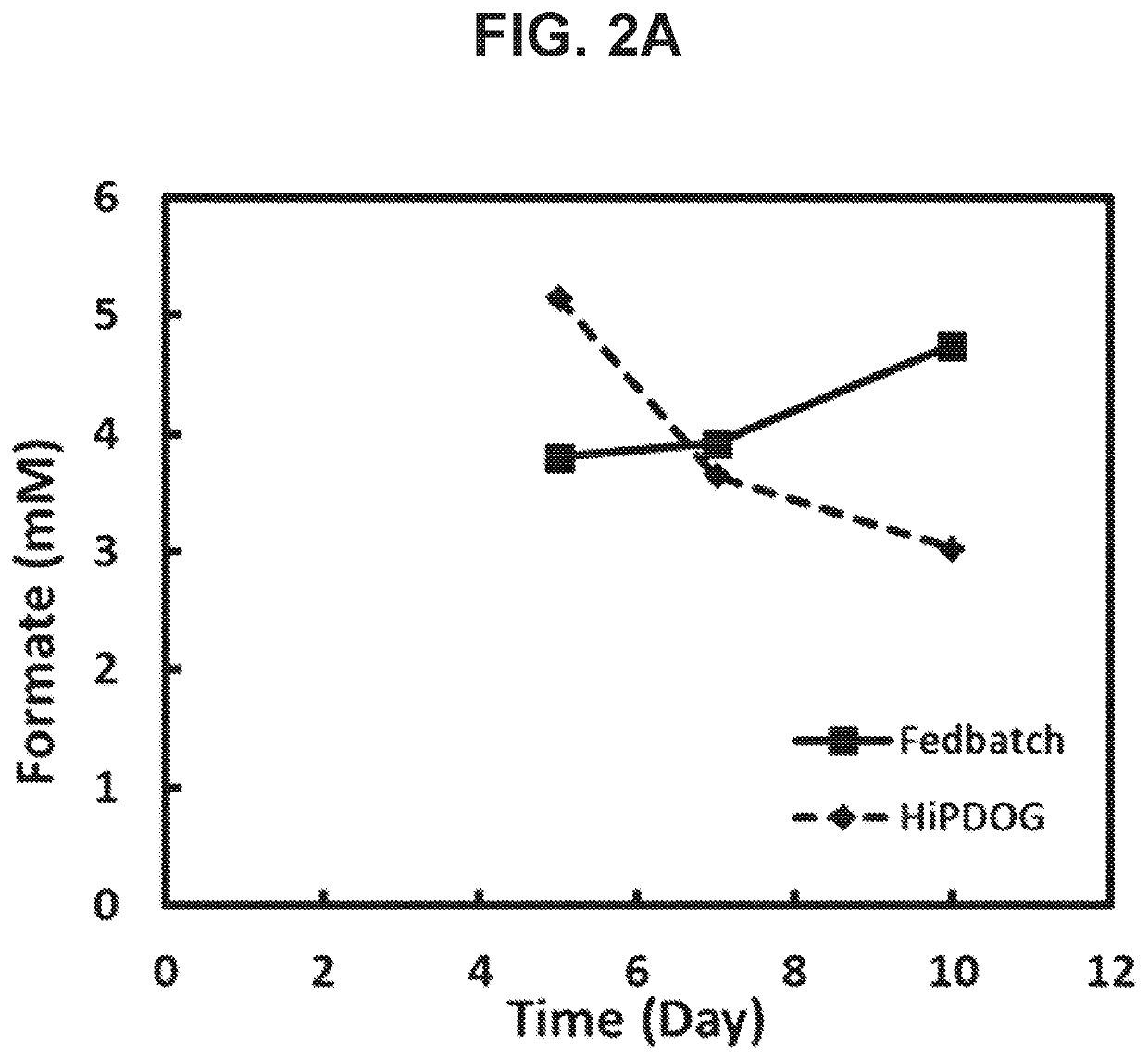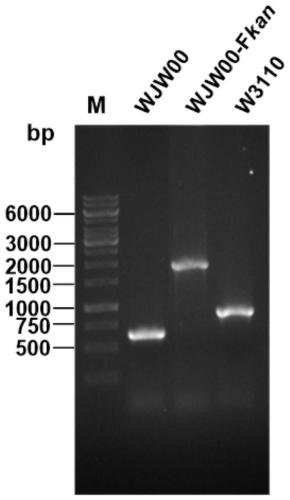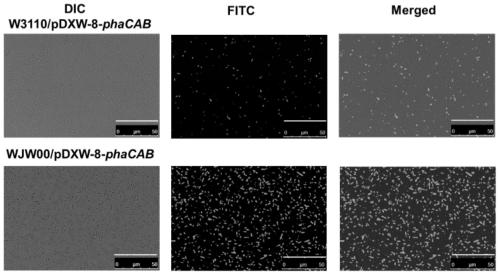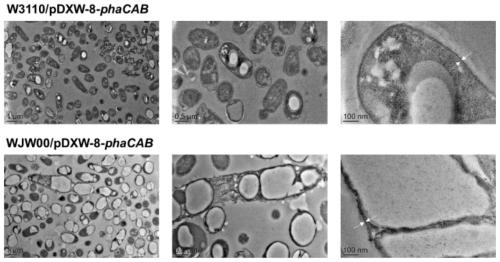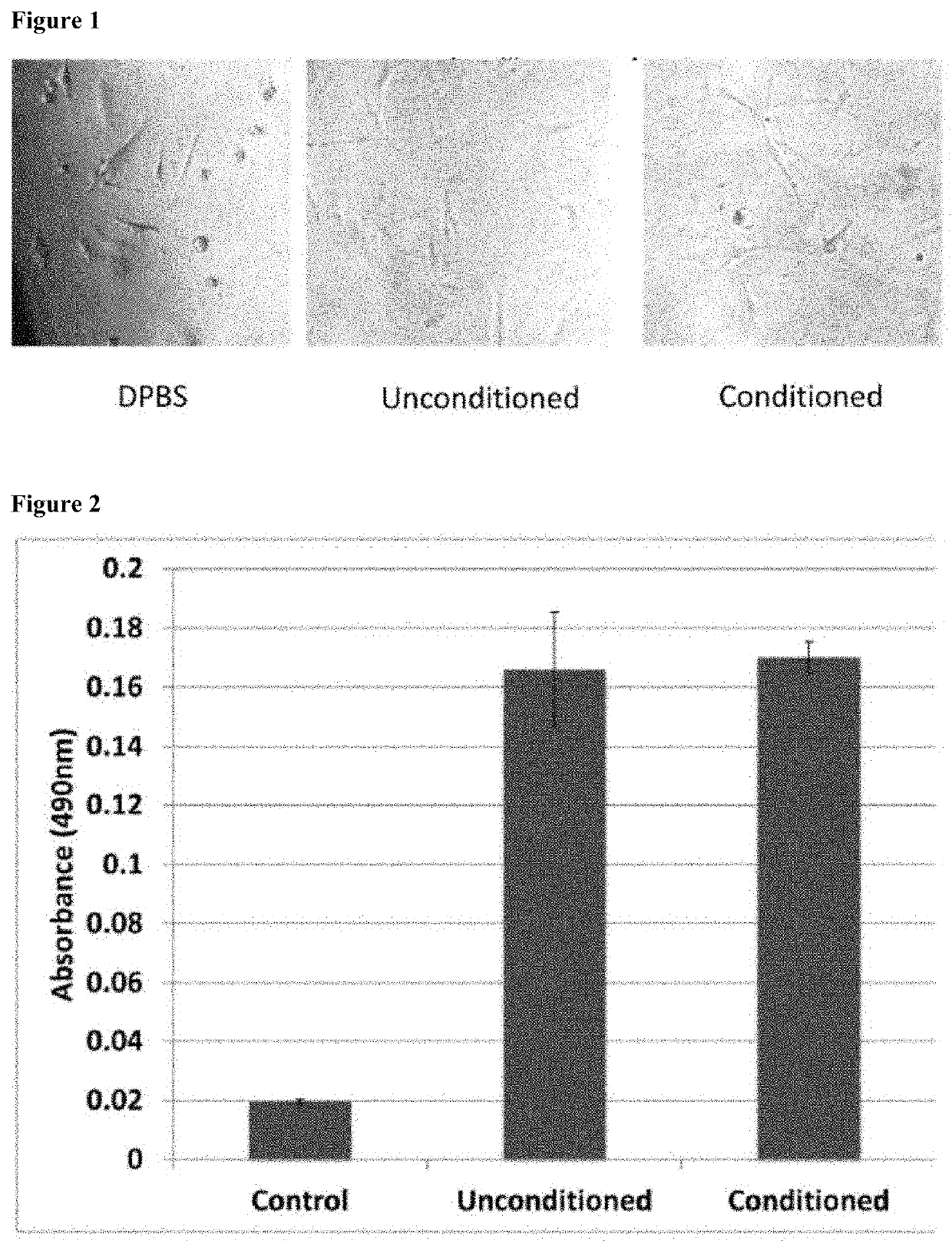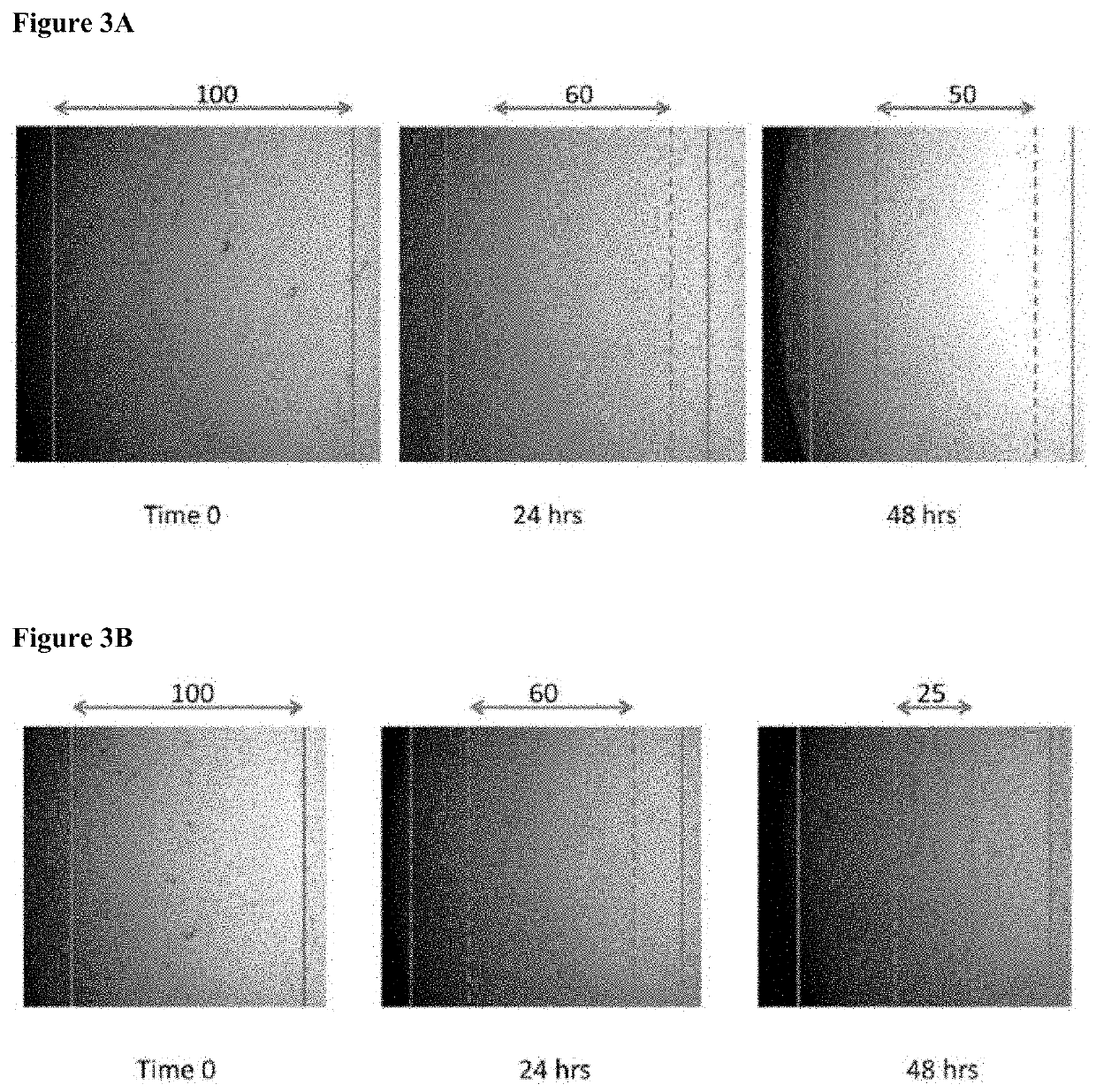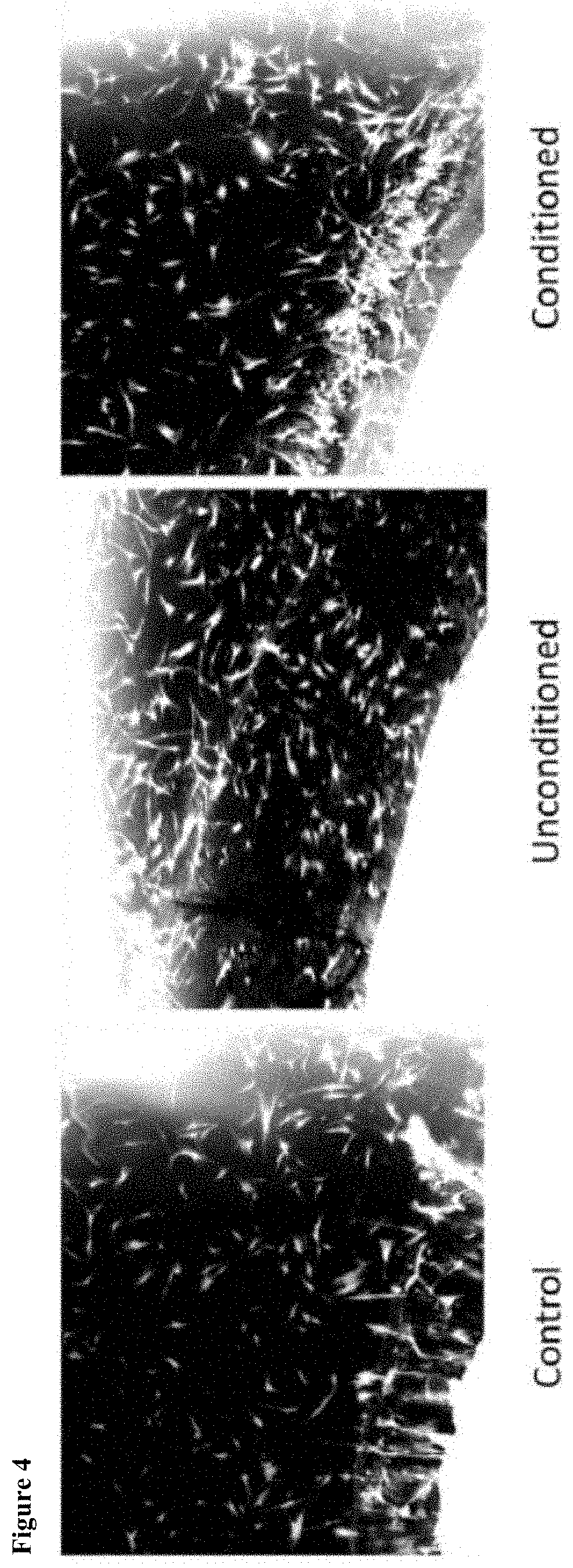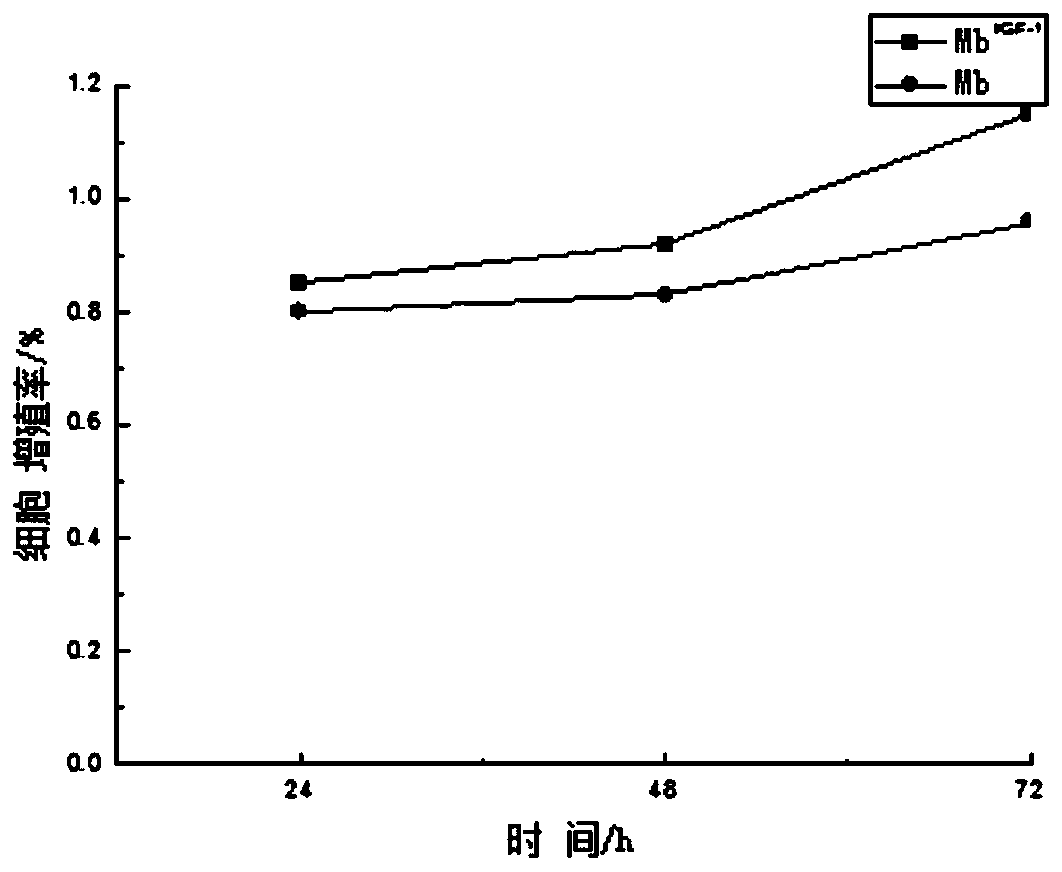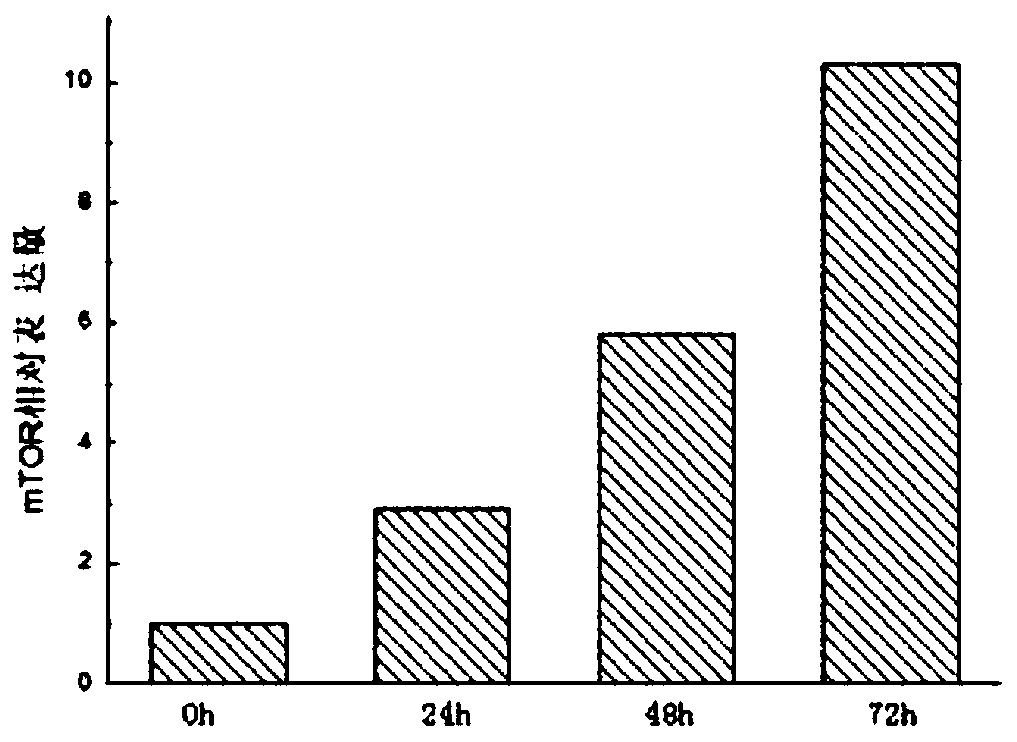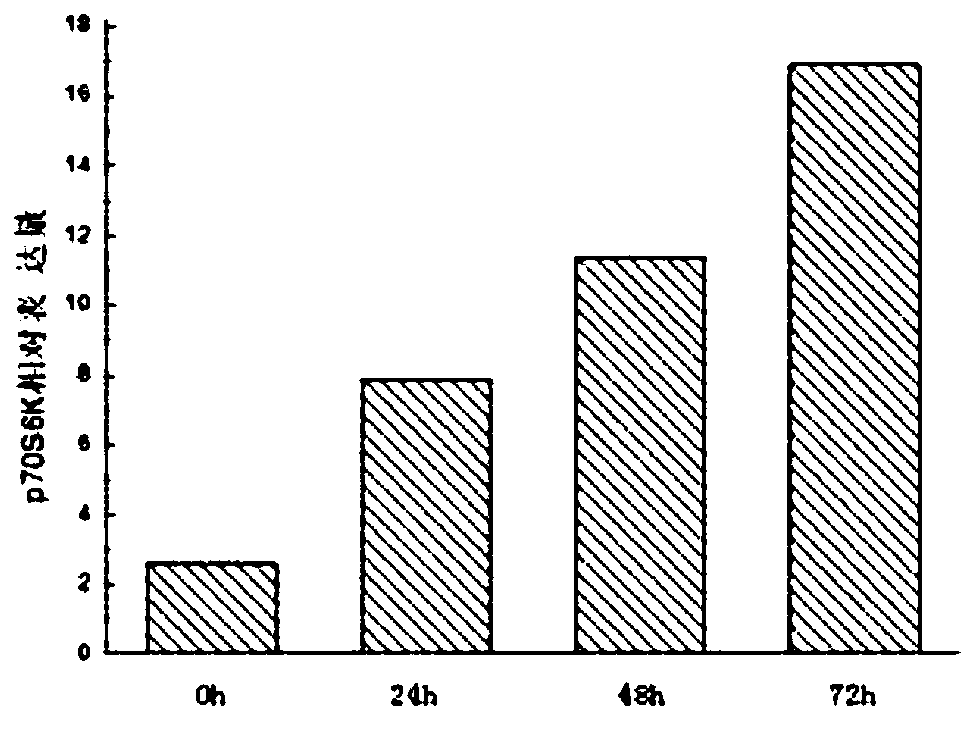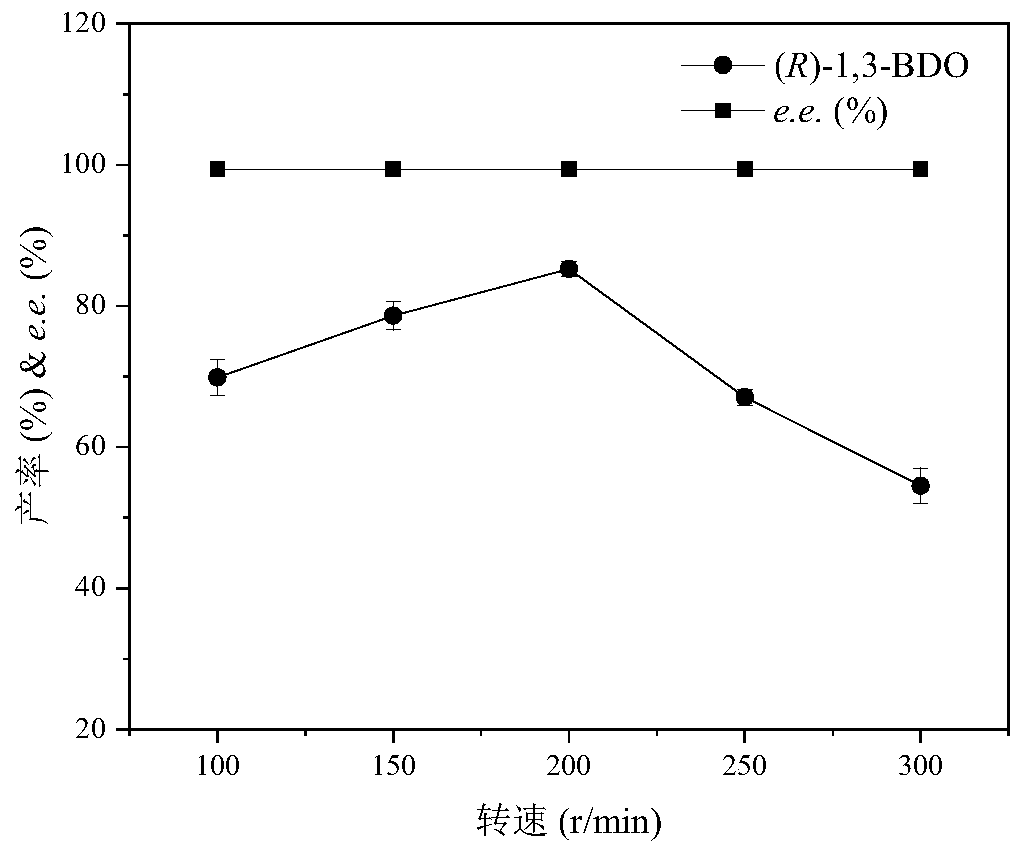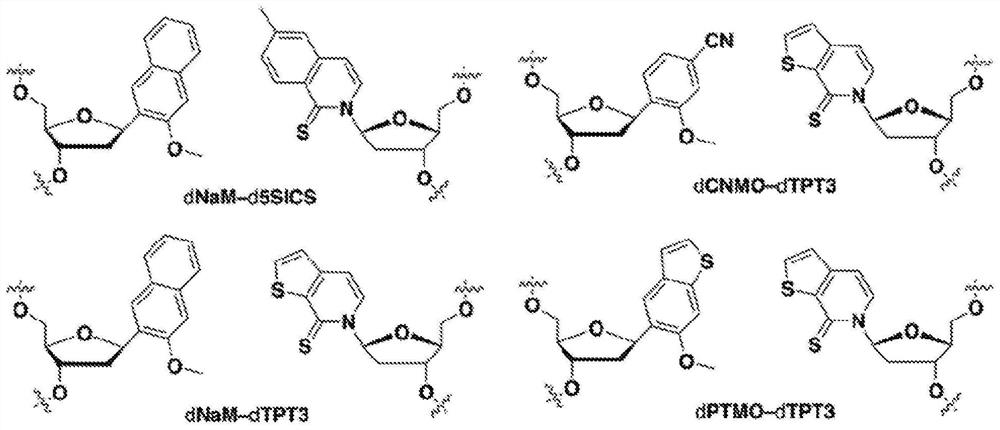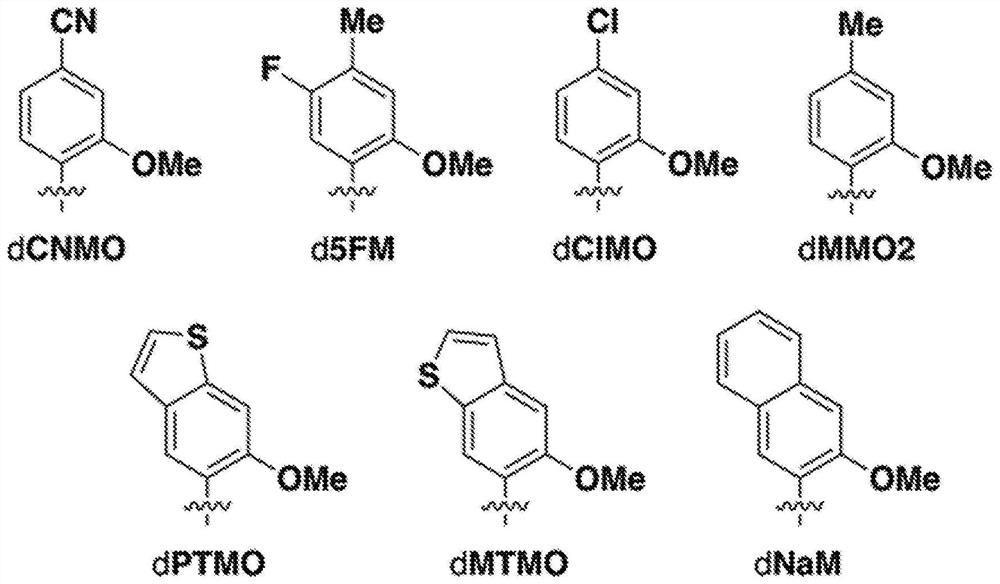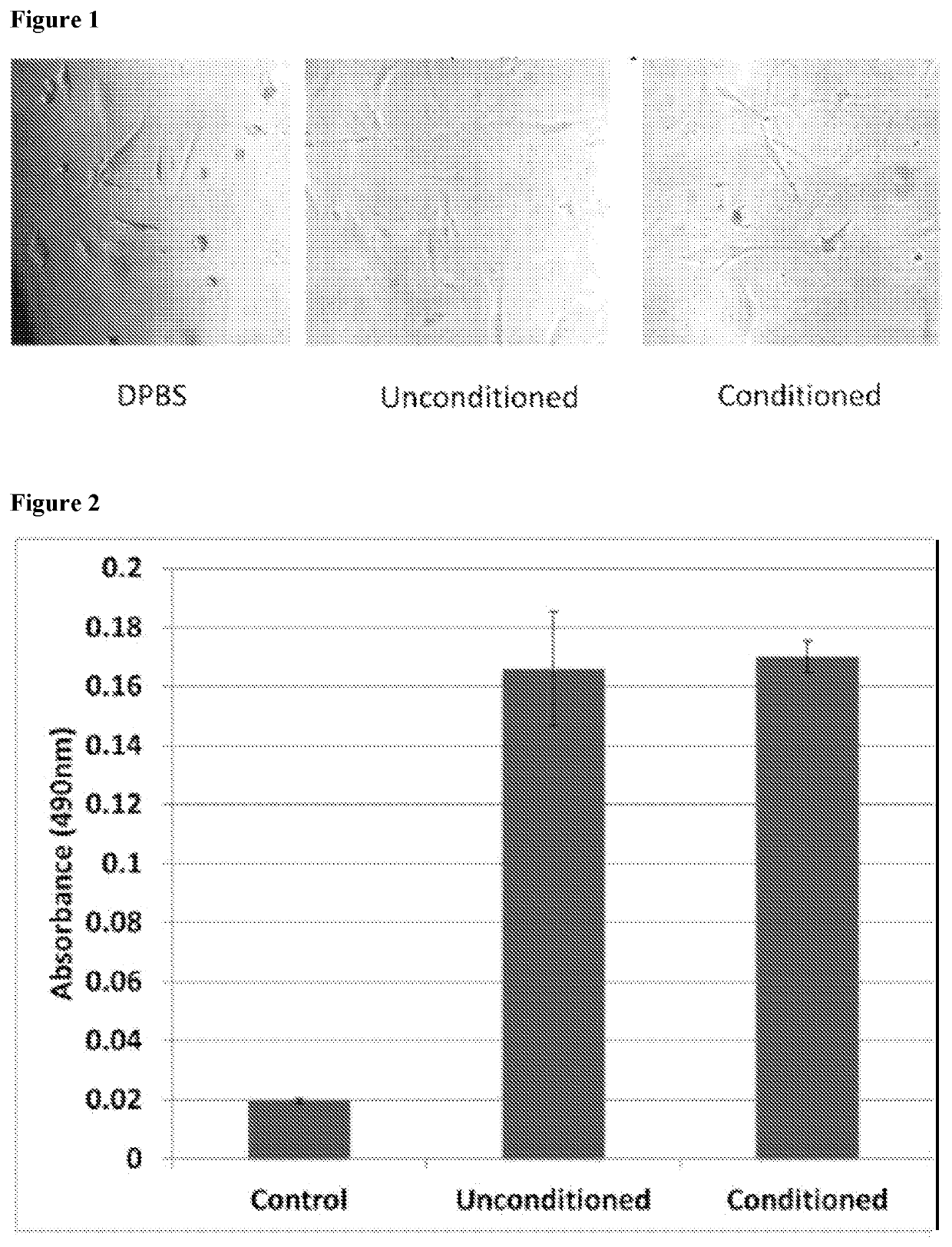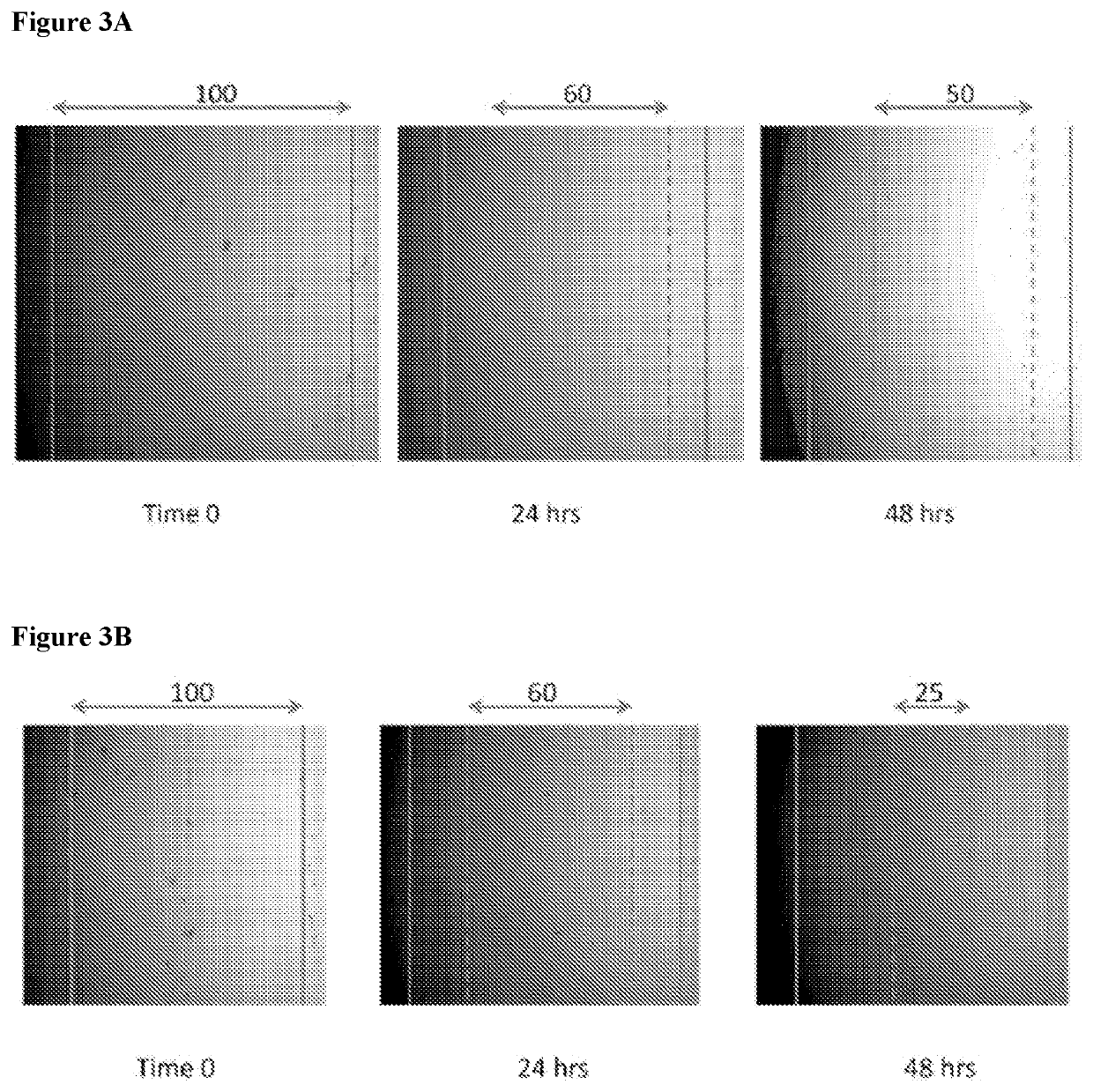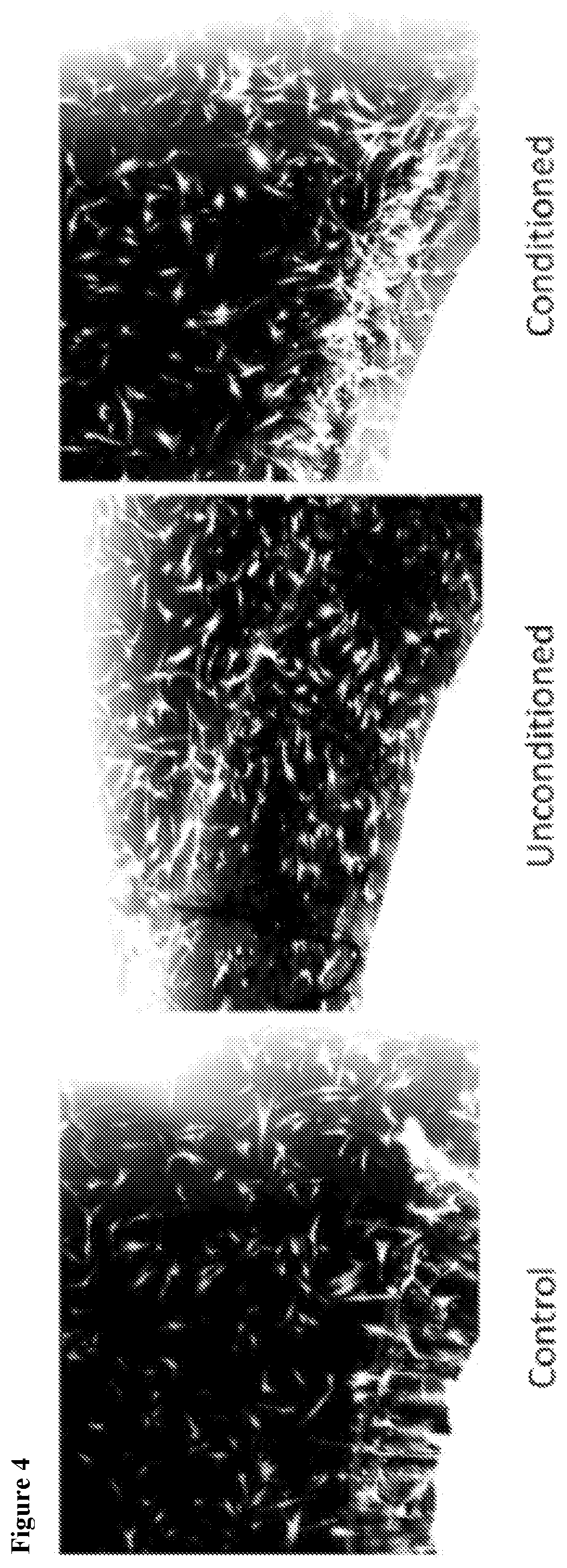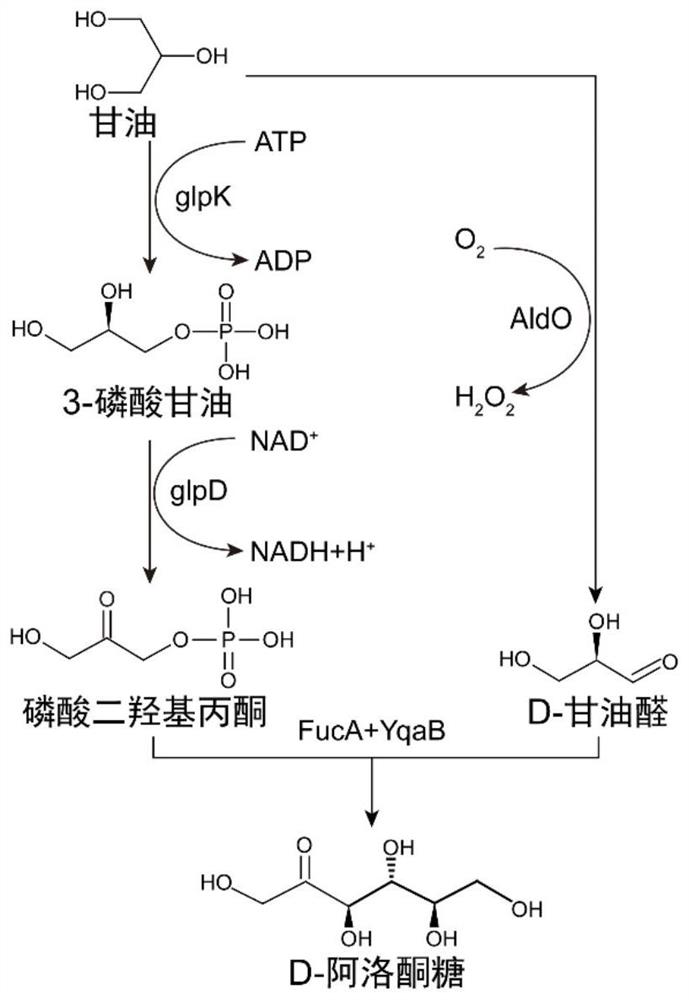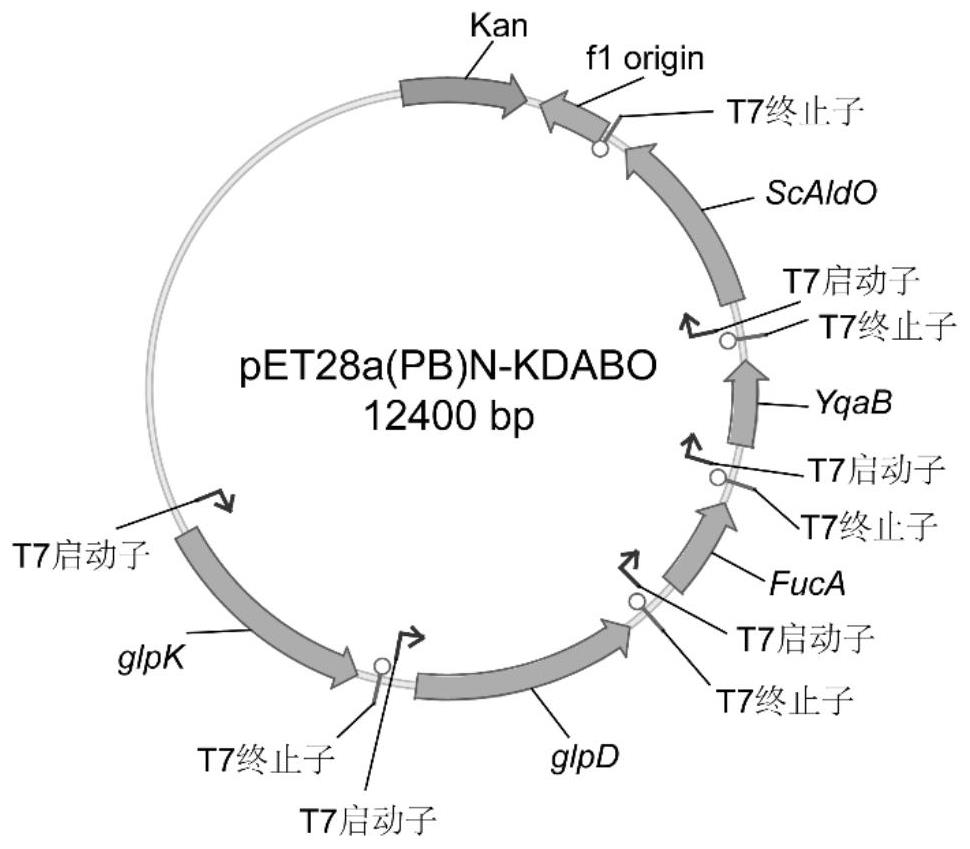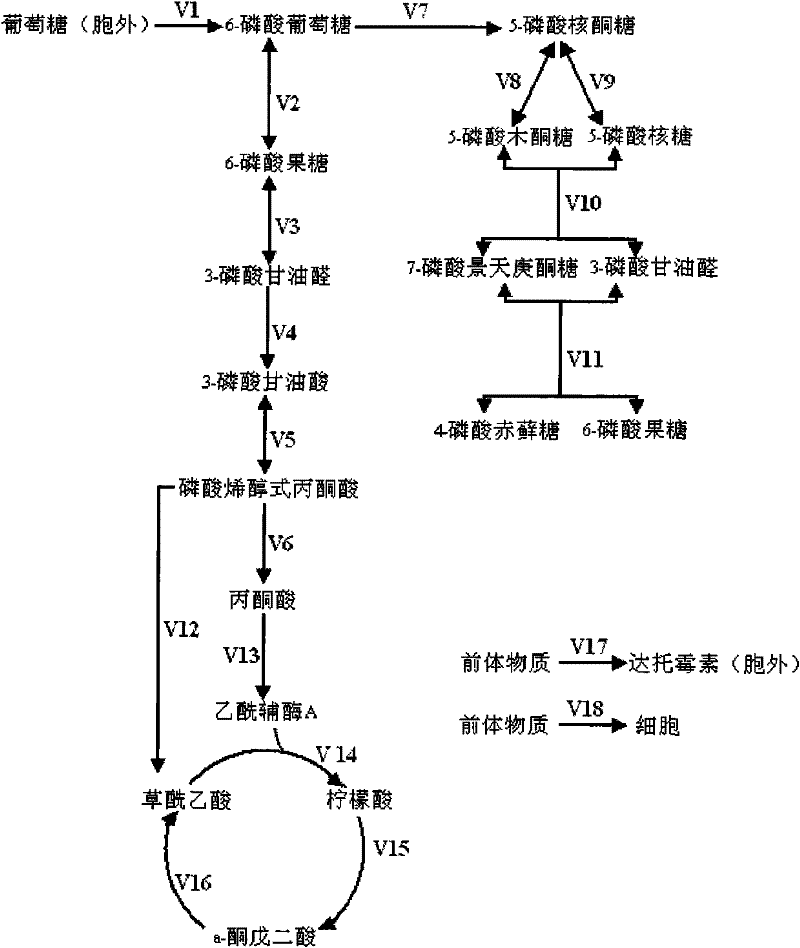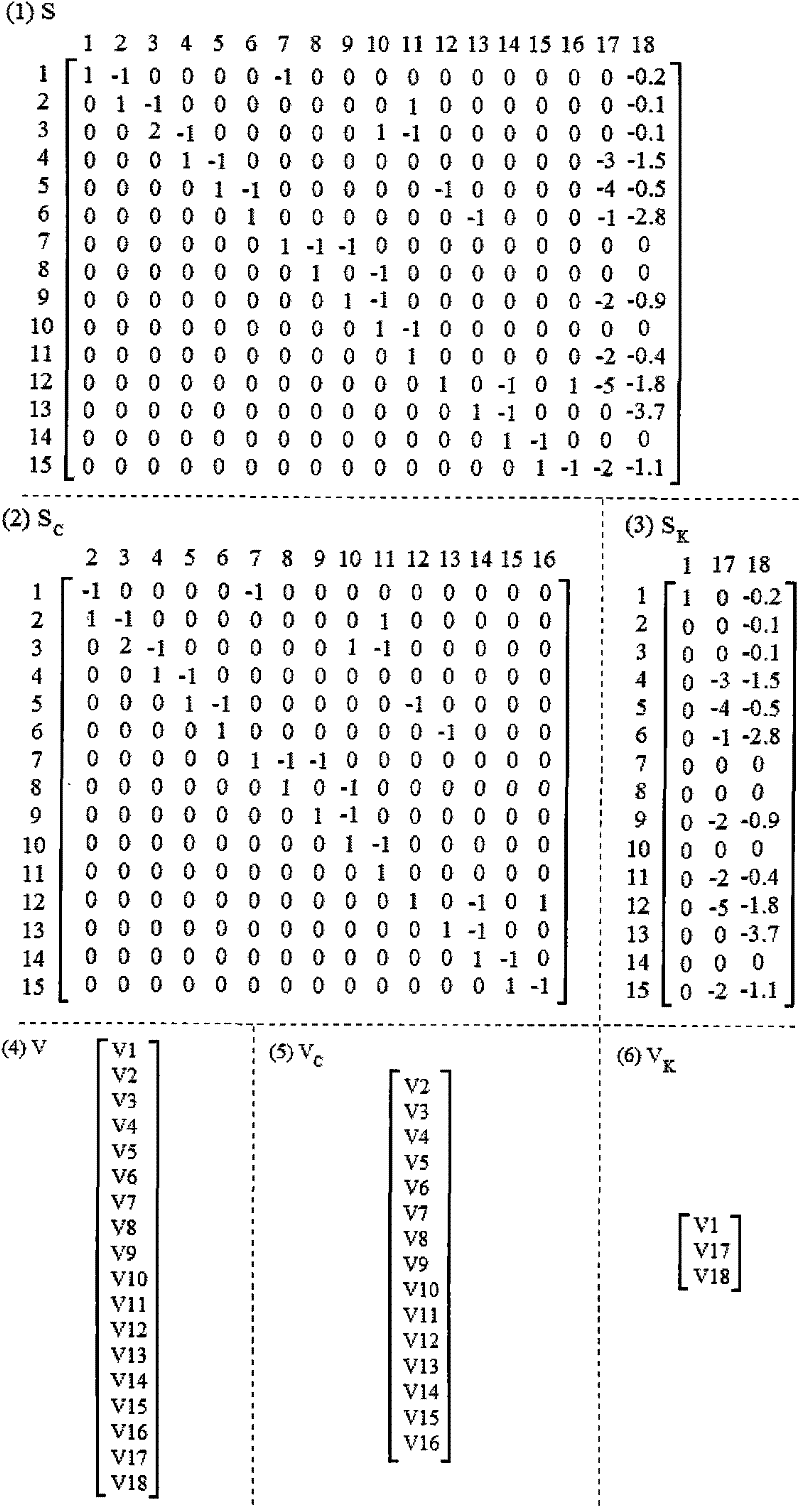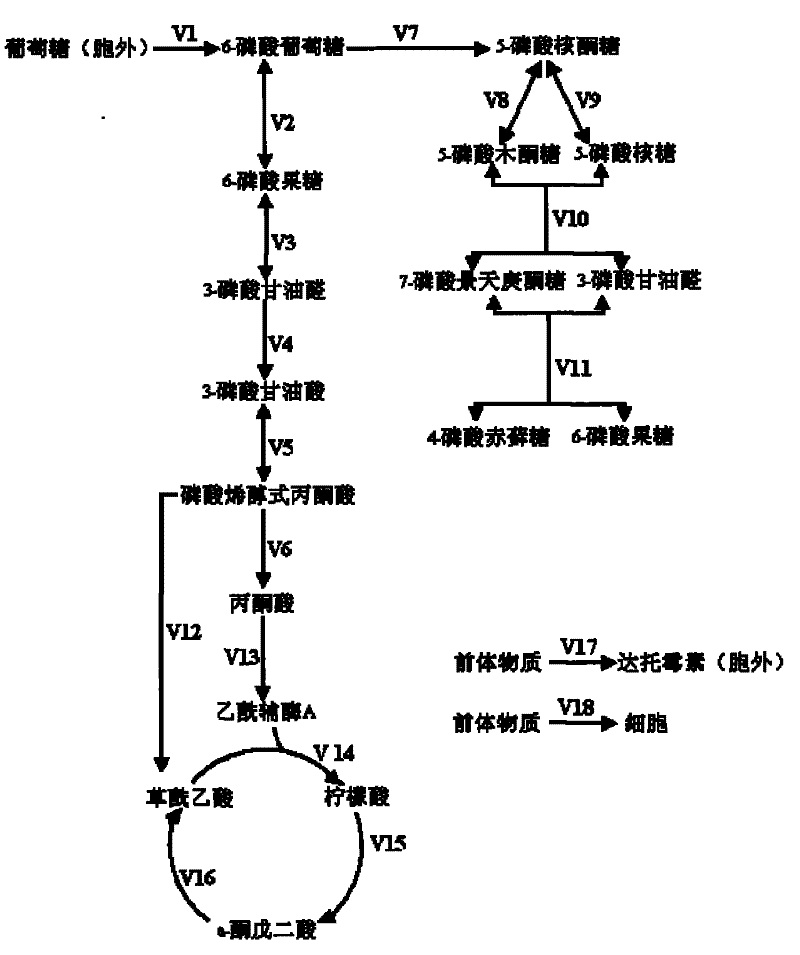Patents
Literature
Hiro is an intelligent assistant for R&D personnel, combined with Patent DNA, to facilitate innovative research.
32 results about "Cellular synthesis" patented technology
Efficacy Topic
Property
Owner
Technical Advancement
Application Domain
Technology Topic
Technology Field Word
Patent Country/Region
Patent Type
Patent Status
Application Year
Inventor
Monoazole ligand platinum analogs
InactiveUS7759488B2Easily transported into tumor cellStrong hydrogen bondingOrganic active ingredientsPlatinum organic compoundsPurinePt element
Disclosed herein are novel platinum-based analogs with a single substituted azole ligand: RN═NR7, wherein the RN═NR7 functional group is covalently bonded to the platinum through nitrogen of NR7. The analogs also have nitrogen donor ligands capable of forming hydrogen bonds with the bases in DNA or RNA, and one or more leaving groups which can be displaced by water, hydroxide ions or other nucleophiles, which is thought to form active species in vivo, and then, form cross-linked complexes between nucleic acid strands, principally between purines in DNA (or RNA), i.e., at the Guanine or Adenine bases, thereof. These platinum analogs may also be more easily transported into tumor cells, due to their increased lipophilicity and are likely to be useful as anti-neoplastic agents, and in modulating or interfering with the synthesis or replication or transcription of DNA or translation or function of RNA in vitro or in vivo, as they are potentially capable of forming a platinum coordinate complex with an intact or nascent DNA or RNA and thereby interfering with cellular synthesis, transcription or replication of nucleic acid polynucleotides.
Owner:BIONUMERIK PHARMA INC
Method and composition for treating mammalian diseases and injuries which cause pain, erythema, swelling, crusting, ischemia scarring and excess white blood cell infiltration
InactiveUS7122578B2Reducing undesired inflammatory responseIncrease cellular metabolic rateBiocidePeptide/protein ingredientsCellular componentAntioxidant
A method for treating the disease state in mammals caused by mammalian cells involved in the inflammatory response is disclosed. Mammalian cells participating in the inflammatory response are contacted with an inflammatory suppressor selected from the group consisting of alpha-keto acids and their salts which reduce the undesired inflammatory response and is an antioxidant. The inflammatory suppressor may further provide a cellular energy source and be a building block in the cellular synthesis of other cellular components. Compositions for reducing and treating undesired inflammatory response such as pain, swelling, erythema, crusting, scarring, itching, also disclosed.
Owner:MARTIN ALAIN
Method for synthesis of D-psicose by aldolase whole cell
The invention discloses a method for synthesis of D-psicose by microbiological fermentation, specifically a method for synthesis of D-psicose by aldolase whole cell. The method includes: firstly constructing recombinant corynebacterium glutamicum SY12 carrying L-fucose-1-phosphate aldolase gene and fructose-1-phosphorylase gene (i.e. with aldehyde condensation approach), then adding glucose and D-glyceraldehyde into a basic salt medium, synthesizing dihydroxyacetone phosphate from glucose by means of intracellular glycolysis, synthesizing a single product D-psicose from D-glyceraldehyde and dihydroxyacetone phosphate (DHAP) under the action of the L-fucose-1-phosphate aldolase and fructose-1-phosphorylase carried by the corynebacterium glutamicum recombinant strain SY12, with the conversion rate of D-glyceraldehyde being 53%. Therefore, compared with the existing method for in vitro synthesis of D-psicose by ketose3-epimerase, the biosynthesis method of D-psicose provided by the invention has the advantages of high conversion rate, single product, easy separation and the like, and lays certain foundation for mass production of D-psicose.
Owner:天津怡和生物科技有限责任公司
Skin Care Compositions and Treatments
InactiveUS20120009233A1Good lookingIncrease generationBiocideCosmetic preparationsCutinCell culture media
The invention is directed compositions containing growth agents synthesized from cultured cells from skin. Skin cells such as keratinocytes and dermal fibroblasts are cultured in vitro in cell medium and in the course of culture the cultured cells synthesize and secrete agents into the cell medium. The medium containing agents are collected and incorporated into pharmaceutical or cosmetic preparations to treat an individual. The preparation is applied and has a rejuvenating effect on the cells and tissue.
Owner:ORGANOGENESIS
Method and apparatus to identify small variations of biomolecules
InactiveUS6887667B2Increase the differenceSugar derivativesMicrobiological testing/measurementTreatment effectTissue extracts
Many diseases are related to variations in the genetically specified structure of proteins synthesized by cells. Genetic engineering is now able to identify the structural variations and to introduce new genes to synthesize more healthful proteins, but it is difficult actually to identify the specific protein or chemical variants in bodily fluids and extracts of tissues in order to diagnose diseases and to assess the effects of treatment. This invention provides apparatuses and methods which allow a user to finely discriminate between small variations in the structure, function and levels of specific biochemicals even when admixed with other biochemicals.
Owner:UNIV OF SOUTHERN CALIFORNIA
Near-Infrared electromagnetic modification of cellular steady-state membrane potentials
InactiveUS20090299263A1Useful in therapyAltering valueElectrotherapyMedical devicesPhosphorylationRadiation exposure
Systems and methods are disclosed herein for applying near-infrared optical energies and dosimetries to alter the bioenergetic steady-state trans-membrane and mitochondrial potentials (ΔΨ-steady) of all irradiated cells through an optical depolarization effect. This depolarization causes a concomitant decrease in the absolute value of the trans-membrane potentials ΔΨ of the irradiated mitochondrial and plasma membranes. Many cellular anabolic reactions and drug-resistance mechanisms can be rendered less functional and / or mitigated by a decrease in a membrane potential ΔΨ, the affiliated weakening of the proton motive force Δp, and the associated lowered phosphorylation potential ΔGp. Within the area of irradiation exposure, the decrease in membrane potentials ΔΨ will occur in bacterial, fungal and mammalian cells in unison. This membrane depolarization provides the ability to potentiate antimicrobial, antifungal and / or antineoplastic drugs against only targeted undesirable cells.
Owner:NOMIR MEDICAL TECH
Monoimine ligand platinum analogs
InactiveUS20070004697A1Strong hydrogen bondingEasily transported into tumor cellBiocideGroup 5/15 element organic compoundsCross-linkLeaving group
Disclosed herein are novel platinum-based analogs with a single substituted imine ligand: R7RC═NR8, wherein the R7RC═NR8 functional group is covalently bonded to the platinum through nitrogen. The analogs also have nitrogen donor ligands capable of forming hydrogen bonds with the bases in DNA or RNA, and one or more leaving groups which can be displaced by water, hydroxide ions or other nucleophiles, which is thought to form active species in vivo, and then, form cross-linked complexes between nucleic acid strands, principally between purines in DNA (or RNA), i.e., at the Guanine or Adenine bases, thereof. These platinum analogs may also be more easily transported into tumor cells, due to their increased lipophilicity and are likely to be useful as anti-neoplastic agents, and in modulating or interfering with the synthesis or replication or transcription of DNA or translation or function of RNA in vitro or in vivo, as they are potentially capable of forming a platinum coordinate complex with a intact or nascent DNA or RNA and thereby interfering with cellular synthesis, transcription or replication of nucleic acid polynucleotides.
Owner:BIONUMERIK PHARMA INC
Materials and methds to enhance hematopoietic stem cells engraftment procedures
This disclosure is directed to the methods of enhancing hematopoietic stem cells (HSPC) and progenitor cell (HSPC) engraftment procedure. Treatment in vivo of a HSPC donor with compounds that reduce PGE2 biosynthesis or PGE2 receptor antagonists alone, or in combination with other hematopoietic mobilization agents such as AMD3100 and G-CSF, increases the circulation of available HSPCs. Compounds that reduce the cellular synthesis of PGE2 include non-steroidal anti-inflammatory compounds such as indomethacin. Treatment ex vivo of HSPC with an effective amount of PGE2 or at least one of its derivatives such as 16,16-dimethyl prostaglandin E2 (dmPGE2), promotes HSPC engraftment. Similar methods may also be used to increase viral-mediated gene transduction efficacy into HSPC.
Owner:INDIANA UNIV RES & TECH CORP
Method and composition for treating mammalian nasal and sinus diseases caused by inflammatory response
InactiveUS20060247308A1Reduce inflammationIncrease metabolic rateBiocidePeptide/protein ingredientsSinus diseaseCellular component
A method for treating the disease state in mammals caused by mammalian nasal and sinus cells involved in the inflammatory response is disclosed. Mammalian nasal and sinus cells participating in the inflammatory response are contacted with an inflammatory response mediator which reduces the undesired inflammatory response and is an antioxidant. The inflammatory response mediator may further provide a cellular energy source and be a building block in the cellular synthesis of other cellular components. Compositions for reducing and treating undesired inflammatory response are also disclosed.
Owner:KATZ STANLEY E +1
Method and composition for treating mammalian disease caused by inflammatory response
A method for treating the disease state in mammals caused by mammalian cells involved in the inflammatory response is disclosed. Mammalian cells participating in the inflammatory response are contacted with an inflammatory response mediator which reduces the undesired inflammatory response and is an antioxidant. The inflammatory response mediator may further provide a cellular energy source and be a building block in the cellular synthesis of other cellular components. Compositions for reducing and treating undesired inflammatory response are also disclosed.
Owner:CELLULAR SCI INC
Cells and method of cell culture
ActiveUS20180265904A1Lower levelIncreasing and decreasing gene expressionGenetically modified cellsCulture processHigh cellCell growth
The invention relates to a method of cell culture where the cells are modified to reduce the level of synthesis of growth and / or productivity inhibitors by the cell. The invention also relates to a method of cell culture for improving cell growth and productivity, in particular in fed-batch culture of mammalian cells at high cell density. The invention further relates to a method of producing cells with improved cell growth and / or productivity in cell culture and to cells obtained or obtainable by such methods.
Owner:PFIZER INC
Anti-inflammatory composition, preparation method and application
PendingCN112022860ARepair barrier functionEnhance the ability of anti-inflammatory factorsHydrocarbon active ingredientsHydroxy compound active ingredientsInflammatory factorsSecosteroids
The invention discloses an anti-inflammatory composition, a preparation method and an application. The anti-inflammatory composition comprises beta-sitosterol, pseudo-ceramide, glycyrrhetinic acid compounds and fatty acid compounds. The composition has the technical effects that the beta-sitosterol, the pseudo-ceramide and the fatty acid compounds are adopted, so that repair of lipid bilayers of skin cells in an inflammatory region is promoted, the barrier function of the skin in the inflammatory region is recovered, and the anti-inflammatory factor capacity of the skin is improved; the anti-inflammatory effect of the composition is improved through cooperation with an anti-inflammatory agent; the pseudo-ceramide is easy to absorb and can promote cell synthesis to supplement ceramide in the lipid bilayers; and the beta-sitosterol can play a role of a fatty acid compound antioxidant, so that stimulation to the skin after peroxidation of the fatty acid compound is avoided, the use amountof the fatty acid compound in the composition is increased, recovery of the lipid bilayers of the skin cells is further promoted, and the anti-inflammatory factor capacity of the composition is improved.
Owner:上海卓彦生物科技有限公司
Sorbus pohuashanensis stem cells capable of increasing anthocyanin content, culture medium and culture method
PendingCN113913362AEasy to synthesizeReduce joinCell culture mediaPlant cellsBiotechnologyCell culture media
The invention discloses a sorbus pohuashanensis stem cell capable of increasing anthocyanin content, a culture medium and a culture method, the culture medium can be applied to the culture for synthesizing anthocyanin from the sorbus pohuashanensis stem cell, and the culture method comprises the following specific steps: (1) preparing stem cell tissues; and (2) induction and accumulation of anthocyanin. According to the method, the konjac is used for preparing a natural culture medium, and nutrient substances of the konjac are used for providing macroelements, microelements and a carbon source for stem cells to be cultured; substances contained in the konjak have a promoting effect on stem cell induction, explants expand in 3-5 days, and stem cells are obviously increased in 7-10 days; the konjak culture medium also has the effect of promoting anthocyanin synthesis, and the anthocyanin content is obviously increased; besides, the konjac glucomannan has good coagulability by utilizing the characteristics of the konjac glucomannan, the addition of agar is reduced, the culture cost is saved, and a target product cultured by the natural culture medium is safer and more credible.
Owner:DALIAN POLYTECHNIC UNIVERSITY
Monoazole ligand platinum analogs
InactiveUS20070004696A1Easily transported into tumor cellStrong hydrogen bondingOrganic active ingredientsBiocidePurineLipophilicity
Disclosed herein are novel platinum-based analogs with a single substituted azole ligand: RN═NR7, wherein the RN═NR7 functional group is covalently bonded to the platinum through nitrogen of NR7. The analogs also have nitrogen donor ligands capable of forming hydrogen bonds with the bases in DNA or RNA, and one or more leaving groups which can be displaced by water, hydroxide ions or other nucleophiles, which is thought to form active species in vivo, and then, form cross-linked complexes between nucleic acid strands, principally between purines in DNA (or RNA), i.e., at the Guanine or Adenine bases, thereof. These platinum analogs may also be more easily transported into tumor cells, due to their increased lipophilicity and are likely to be useful as anti-neoplastic agents, and in modulating or interfering with the synthesis or replication or transcription of DNA or translation or function of RNA in vitro or in vivo, as they are potentially capable of forming a platinum coordinate complex with an intact or nascent DNA or RNA and thereby interfering with cellular synthesis, transcription or replication of nucleic acid polynucleotides.
Owner:BIONUMERIK PHARMA INC
Culture medium and application thereof
InactiveCN106635975AFull of nutritionIncrease the number ofCulture processSkeletal/connective tissue cellsActive proteinMesenchymal stem cell
Owner:GUANGZHOU SALIAI STEMCELL SCI & TECH CO LTD
Biocompatible conditioned cell medium compositions and uses thereof
ActiveUS20200095539A1Promote osseointegrationPromotes gumCosmetic preparationsAerosol deliveryGingival tissueCell culture media
The present invention is drawn, in part, to biocompatible compositions comprising a biocompatible polymer matrix and conditioned cell medium comprising i) a cell culture medium and ii) one or more agents synthesized by and secreted from one or more cells cultured in the cell culture medium, as well as therapeutic uses thereof, particularly in modulating bone and / or gum tissue growth.
Owner:CELLUM BIOMEDICAL INC
Recombinant Escherichia coli zjut-ho1 and its application in the preparation of biliverdin
ActiveCN109182232BHigh yieldShort training periodBacteriaMicroorganism based processesEscherichia coliBiliverdin
Owner:ZHEJIANG UNIV OF TECH
Cell surface macromolecule quantitative display system as well as preparation method and application thereof
PendingCN114437232AVerify InteractionAvoid verification workAntibody mimetics/scaffoldsImmunoglobulins against animals/humansHigh affinity antibodyTransmembrane protein
The invention relates to the technical field of biology, in particular to a cell surface macromolecule quantitative display system and a preparation method and application thereof, and the cell surface macromolecule quantitative display system comprises ligand quantitative presenting cells and receptor expression cells. Wherein a phase change peptide fragment is fused on a transmembrane protein of the ligand quantitative presenting cell, the receptor expression cell is a synNotch synthetic receptor expression cell, and an extracellular region of the synNotch synthetic receptor is fused with a region which can be specifically recognized and combined with a ligand on the surface of the ligand presenting cell. When the ligand quantitative presenting cell and the receptor expression cell are co-cultured, the receptor of the receptor expression cell can be specifically and quantitatively activated. The cell surface macromolecule quantitative display system can be applied to ligand-receptor (including antigen-antibody) affinity detection and / or batch acquisition of high-affinity antibodies, the batch of high-affinity antibodies can be rapidly obtained, and subsequent tedious verification work of technologies such as phage display is avoided.
Owner:CENT FOR EXCELLENCE IN MOLECULAR CELL SCI CHINESE ACAD OF SCI
Monoimine ligand platinum analogs
InactiveUS7268244B2Easily transported into tumor cellStrong hydrogen bondingBiocideGroup 5/15 element organic compoundsPurinePt element
Disclosed herein are novel platinum-based analogs with a single substituted imine ligand: R7RC═NR8, wherein the R7RC═NR8 functional group is covalently bonded to the platinum through nitrogen. The analogs also have nitrogen donor ligands capable of forming hydrogen bonds with the bases in DNA or RNA, and one or more leaving groups which can be displaced by water, hydroxide ions or other nucleophiles, which is thought to form active species in vivo, and then, form cross-linked complexes between nucleic acid strands, principally between purines in DNA (or RNA), i.e., at the Guanine or Adenine bases, thereof. These platinum analogs may also be more easily transported into tumor cells, due to their increased lipophilicity and are likely to be useful as anti-neoplastic agents, and in modulating or interfering with the synthesis or replication or transcription of DNA or translation or function of RNA in vitro or in vivo, as they are potentially capable of forming a platinum coordinate complex with a intact or nascent DNA or RNA and thereby interfering with cellular synthesis, transcription or replication of nucleic acid polynucleotides.
Owner:BIONUMERIK PHARMA INC
Cells with reduced inhibitor production and methods of use thereof
The invention relates to a method of cell culture where the cells are modified to reduce the level of synthesis of growth and / or productivity inhibitors by the cell. The invention also relates to a method of cell culture for improving cell growth and productivity, in particular in culture of mammalian cells at high cell density. The invention further relates to a method of producing cells with improved cell growth and / or productivity in cell culture and to cells obtained or obtainable by such methods.
Owner:PFIZER INC
Method for efficiently synthesizing PHBs by knocking out rfaD gene
ActiveCN110373435AImproved ability to synthesize PHBIncreased volumetric yieldMicroorganism based processesFermentationEscherichia coliGene engineering
The invention discloses a method for efficiently synthesizing PHBs by knocking out an rfaD gene, and belongs to the field of gene engineering and fermentation engineering. According to the method, after the rfaD gene on an escherichia coli genome is knocked out, an encoding gene for a PHB-synthesizing enzyme is transformed into a strain for fermentation to produce the PHBs. It is found that the knockout of the rfaD gene can significantly improve the capability of synthesizing the PHBs by escherichia coli W3110, DH5alpha and JM109, the PHB volume yields of WJW00 / pDXW-8-phaCAB are increased by 3.95 times and 3.66 times compared with that of contrast escherichia coli W3110 / pDXW-8-phaCAB. Compared with the contrast escherichia coli, the ratio of the weight of PHBs synthesized by cells of WJD00 / pDXW-8-phaCAB to the dry cell weight is increased by about 80%, and the transformation rate is increased by about 1.9 times. Compared with the contrast escherichia coli, the ratio of the weight of PHBs synthesized by cells of WJJ00 / pDXW-8-phaCAB to the dry cell weight is increased by about 75%, and the transformation rate is increased by about 1.8 times.
Owner:JIANGNAN UNIV
Biocompatible conditioned cell medium compositions and uses thereof
The present invention is drawn, in part, to biocompatible compositions comprising a biocompatible polymer matrix and conditioned cell medium comprising i) a cell culture medium and ii) one or more agents synthesized by and secreted from one or more cells cultured in the cell culture medium, as well as therapeutic uses thereof, particularly in modulating bone and / or gum tissue growth.
Owner:CELLUM BIOMEDICAL INC
Recombination porcine interferon gamma-Fc fusion protein as well as coding gene and expression method thereof
ActiveCN103232544BMaintain biological activityExtended half-lifeBacteriaMicroorganism based processesEscherichia coliDisease
Owner:GENSUN INST OF BIOMEDICINE
Research of molecular mechanism of IGF-1 in skeletal muscle damage repair
PendingCN111467496APromote differentiation and maturationPromote formationOrganic active ingredientsMuscular disorderMyogenic cellPhosphorylation
Owner:SHANDONG PROVINCIAL HOSPITAL
A method for efficiently synthesizing phb by knocking out the rfad gene
ActiveCN110373435BImproved ability to synthesize PHBIncreased volumetric yieldMicroorganism based processesFermentationEscherichia coliGene conversion
The invention discloses a method for efficiently synthesizing PHB by knocking out the rfaD gene, belonging to the fields of genetic engineering and fermentation engineering. In the invention, after knocking out the rfaD gene on the genome of Escherichia coli, the coding gene of the enzyme for synthesizing PHB is transformed into a bacterial strain to ferment and produce PHB. It was found that knockout of the rfaD gene could significantly improve the ability of Escherichia coli W3110, DH5α and JM109 to synthesize PHB, and the PHB volume production of WJW00 / pDXW‑8‑phaCAB was 3.95 and 3.66 times higher than that of the control bacteria W3110 / pDXW‑8‑phaCAB; WJD00 / The proportion of PHB synthesized by pDXW‑8‑phaCAB cells to cell dry weight increased by about 80% compared with the control bacteria, and the transformation rate increased by about 1.9 times; the ratio of PHB synthesized by WJJ00 / pDXW‑8‑phaCAB cells to cell dry weight increased by about 75% compared with the control bacteria , the conversion rate increased by about 1.8 times.
Owner:JIANGNAN UNIV
Method for synthesizing (R)-1,3-butanediol with whole cells of microorganism
The invention discloses a method for synthesizing (R)-1,3-butanediol with whole cells of a microorganism, and belongs to the technical field of bio-catalytic asymmetric conversion. According to the method, a microorganism, namely Pichia kudriavzevii CCTCC M 2019329, capable of realizing highly selective whole-cell synthesis of (R)-1,3-butanediol is obtained by screening, whole cells of the microorganism are used as a catalyst, 4-hydroxyl-2-butanone is used as a substrate, the reaction pH, temperature, revolution speed, and auxiliary substrate obtained after single-factor optimization are used,the yield of (R)-1,3-butanediol is up to 80% or more, the optical purity is up to 99% or more, and the product concentration is up to 100 g / L or more.
Owner:JIANGNAN UNIV
Compositions and methods for in vivo synthesis of non-natural polypeptides
PendingCN114761026AImproved pharmacokinetic propertiesImprove pharmacodynamic propertiesOrganic active ingredientsHydrolasesIn vivoOrganic chemistry
Owner:THE SCRIPPS RES INST
Biocompatible conditioned cell medium compositions and uses thereof
The present invention is drawn, in part, to biocompatible compositions comprising a biocompatible polymer matrix and conditioned cell medium comprising i) a cell culture medium and ii) one or more agents synthesized by and secreted from one or more cells cultured in the cell culture medium, as well as therapeutic uses thereof, particularly in modulating bone and / or gum tissue growth.
Owner:CELLUM BIOMEDICAL INC
Whole-cell synthesis method of D-psicose by taking glycerol as substrate
PendingCN114426994AReduce manufacturing costSuitable for mass productionBacteriaTransferasesPtru catalystGlyceraldehyde
The invention provides a whole-cell synthesis method of D-psicose, which is used for converting glycerol into D-psicose by one pot, and relates to the field of biochemical engineering. In order to avoid thermodynamic equilibrium in an isomerase pathway, use of expensive dihydroxyacetone phosphate and D-glyceraldehyde and reduce the production cost of D-psicose, the invention constructs a complete conversion pathway from glycerol to D-psicose. A recombinant strain is used as a whole-cell catalyst, and one-pot conversion of glycerol into D-psicose is realized. Compared with other similar methods, the method disclosed by the invention has the advantages that an intermediate product fructose (an isomeride of D-psicose) is not left in a reaction system, the product is single (only D-psicose is generated, and a by-product D-sorbose is not generated), so that separation and purification are facilitated; compared with an enzyme catalytic reaction system, the method has the advantages that a tedious enzyme purification process is omitted, the production process is simple, the cost is lower, and the method is suitable for large-scale production.
Owner:ZHENGZHOU UNIV
Metabolic network analysis method for streptomyces roseosporus as daptomycin producing thalli
Owner:NANTONG YIKAI MEDICAL DEVICES CO LTD
Features
- R&D
- Intellectual Property
- Life Sciences
- Materials
- Tech Scout
Why Patsnap Eureka
- Unparalleled Data Quality
- Higher Quality Content
- 60% Fewer Hallucinations
Social media
Patsnap Eureka Blog
Learn More Browse by: Latest US Patents, China's latest patents, Technical Efficacy Thesaurus, Application Domain, Technology Topic, Popular Technical Reports.
© 2025 PatSnap. All rights reserved.Legal|Privacy policy|Modern Slavery Act Transparency Statement|Sitemap|About US| Contact US: help@patsnap.com



